#so someone needs to cast him in a jane austen adaptation
Explore tagged Tumblr posts
Text
anyone want to hear my six of crows x jane austen's emma au. yes of course you do don't be silly. the only person allowed to be silly is me as I descend into madness in the course of trying to cast this. (if you think 'I've heard this before' yes I've posted abt it before tho I think it was on my main)
kaz is emma, a bored, overintelligent rich bitch stuck in a country house with a bunch of shit idiot neighbours and almost no one to entertain or match him. fucking useless dad per haskell / mr woodhouse is a weaksauce hypochrondriac, and jordie / isabella has gone and got married and ditched kaz, the bastard. the only consolation is their neighbour inej / mr knightley, who is rich, sensible, popular, and elegible as hell... glory be, an intellectual equal for kaz!
in order to be less bored, kaz takes on a protege, mysterious randomer and natural son wylan / harriet smith, who kaz decides to mould in his own image and make a good match for. wylan is in love with gentleman farmer jesper / robert martin, but kaz is a snob and tries to push him towards local vicar kuwei / mr elton (I KNOW. I'M SORRY KUWEI), but that all goes tits up bc turns out kaz is a fucking terrible matchmaker, who'd've known.
meanwhile, unassuming and a little cold, but locally well-liked matthias / jane fairfax has arrived back in the village, and kaz busily commences hating on him because he's another accomplished young man and he makes him feel inadequate. hot on his heels comes the mysterious nina / frank churchill (NINA I'M SO SORRY I FUCKING HATE FRANK BUT THIS IS WHAT WORKS FOR THE COUPLES YOU CAN BE A NICE FRANK CHURCHILL ): ), who kaz is kind of fascinated by and enjoys sparring with, and hence kind of misses the really obvious signs that nina and matthias are secretly engaged, even though inej, ever thief of secrets, has lowkey noticed something's up, like matthias getting mysterious gifts from someone. kaz ends up being convinced that possibly it's inej that's pursuing matthias, which nina encourages because it helps her cover, and kaz kinda panics.
everyone has petty village drama which culiminates when kaz sneers at pekka rollins / miss bates (LISTEN. LI actually you don't need to listen bc I laughed out loud when I thought of this comparison but hear me out, if you just think of it as the equivalent of the church of barter scene except instead of 'I buried him' it's 'when have you ever stopped at three?' it kind of works. sorry to miss bates tho who is still kinda my fave austen character) at box hill, which culminates in inej going BOY WHAT THE FUCK IS YOUR PROBLEM and kaz is like wow she kind of has a point should I be a better person :/
uhh what else even happens. there's a ball after nina massively encourages one, inej saves wylan from being partnerless and later dances with kaz (think of the gloveless dance scene from the 2020 adaptation? yeah? yeahh??). the regency gender conventions here are getting so messed up lmao, never mind. in emma harriet fancies herself in love with mr knightley and emma is forced to realise that she likes him, so let's say that wylan pretends to be after inej, in order to strong arm kaz into realising that he's wanted to marry inej this entire time. wylan's dad turns out to be minted (I'm stretching the book here to make it work w SOC but never mind) but that's after kaz has admitted he fucked up and sent wylan off to marry gentleman farmer jesper, yaaay. nina's relatives who are stopping her from marrying matthias die and hence there's a massive revelation with 'oh they were engaged this whole time lol', kaz is PISSED bc he didn't clock it. uh. everyone gets married and now kaz can escape the shit village and actually go places. the end.
#this would read less batshit if I could draw bc I would just DRAW it#unfortunately I cannot. LOOK AT MY TEXTPOST BOY#six of crows#kaz brekker#inej ghafa#kanej#soc au#six of crows au#helnik#wesper#crooked kingdom#yk the lads would kind of eat those regency clothes tho. kaz doesn't dress THAT differently honestly except for those damn breeches fjd
94 notes
·
View notes
Note
Hey! I’m improving my English and I would love to do it with the help of my Dramione. So, I’m looking for recommendations of fanfics (maybe if it’ll be onefic is better) with easy English level for I practice. I think I’m B1, and I always try to start reading in English but when appears a lot of things that I don’t know I’m very disappointed and let it go. I’ve already read a lot of fanfics with the help of translation, but would be a pleasure if I could read it in English. 🥺
Please, send me if you have something in your mind.
Thanks for your help! ✨
P.S: I wrote this comment without assistance, sorry for any mistake, how I said “I’m trying” 😁
Hi, try these, hope they help you! :D
The Long Weekend By: cleotheo - T, 3 chapters - When Lucius and Narcissa agree to look after their grandchildren for the weekend, Lucius assumes it will be a breeze. However, he wasn’t counting on his five year old granddaughter, Lyra, who is a bit of a handful and manages to keep her grandfather busy all weekend. Short three part story.
To All the Wizards I’ve Loved Before - takenbytheview - M, 7 chapters - “What if—” Malfoy begins, twisting his signet ring with the forefinger and thumb of his other hand. “What if you didn’t tell him?” “What?” “What if we let people think we were actually together? Just for a little while. Not just the Weasel. Everybody.” A Dramione Eighth Year adaptation of Jenny Han’s To All the Boys I’ve Loved Before.
A Touch of Fate By: cleotheo - T, 6 chapters - While celebrating Ginny’s birthday at a swanky spa hotel, Harry Potter and Ron Weasley are shocked to run into their old friend, Hermione Granger, who they haven’t seen for several years. Can old friends be reunited, or will Harry and Ron jumping to conclusions ruin things beyond repair? Reunion style story.
Baker’s Dozen - DarkoftheMoon, Maria81 - T, one-shot - As part of the new and mandatory Muggle Studies curriculum, 8th year students are paired together for a year-long practicum in the culinary arts. If only Draco were interested in either.
Love and Other Historical Accidents by PacificRimbaud - T, 13 chapters, Words: 155,397 - Hermione Granger and Draco Malfoy never intended to blow up their life’s work, but that’s rather what they’ve gone and done. Now they’re trapped 200 years in the past, with a broken Time Turner, a missing snuff box, a handful of overly-eligible daughters, and a House-elf with a grudge. It will require the combined power of their keen intellects to get them home. Too bad they despise one another. For fans of J.K. Rowling, Jane Austen, and P.G. Wodehouse, a historical romantic comedy all about time, and getting the hell out of it.
1 teaspoon of Vanilla and a full bottle of LoveBy: dracorpheus - T, one-shot - After the War, Draco moves to Muggle London to become a baker. He also teaches young children at a nearby school how to bake. One of the parents decides she needs cooking lessons as well.
The Muggle Telephone by gloivy - T, one-shot - Draco finally caved and bought one of those muggle telephones everyone is going on about, though he doesn’t quite understand how it works yet. A social media AU.
Owl SPEW By: kaitward - T, one-shot - The beginning of a relationship, told through a series of letters.
Fireworks By: cleotheo - T, 10 chapters - A party at the end of seventh year results in major life changes for Harry Potter and Hermione Granger, including the loss of their best friend, Ron Weasley. Can a reunion several years later fix the rift, or are some things too broken to ever be fixed? Reunion style story.
The Dangers of Meddlesome Redheads by frostykitten - T, 12 chapters - Ginny thinks Hermione needs to stop waiting around to be swept off her feet, but when she casts a spell on her friend to help her get that special someone, things don’t go exactly as she’d planned… Hermione may just kill her for her meddling.
Future Tripping By: Miss Dorktastic - T, 2 chapters - A few weeks into his eighth year at Hogwarts, Draco Malfoy has a world-bending epiphany. Throw in some crystal balls, a crush and a little bit of jealousy and what he gets is way more than he ever imagined. Or… The 5 times Draco Malfoy’s feelings for Hermione Granger terrified him and the one time it didn’t.
-Lisa
10 notes
·
View notes
Note
back to keeping you up to date with my woman in white watching experience: i'll be honest i find laura kind of annoying and feel like marian and walter would actually make a great couple BUT laura is also incredibly relatable bc i too would be willing to risk it all for victorian era painter ben hardy
omg i love these updates
i love marian so much! the way she dresses is enough to make me swoon a little tbh and every time i watch it im like walter ya moron shes not engaged and youd be cute as shit together but alas he does not listen.
lowkey wanna read the book now, see how close the adaptation is and all that.
but yeah you are absolutely correct, laura knows whats up and i can’t hold anything against her cause lord knows id wanna break off the engagement my father made for me to a baronet on his deathbed just to run off with victorian era painter ben hardy
#i watched 2 episodes at work yesterday and got through a third when i got home lmao#its his fuckin hair man#someone cast my boy in an adaptation of like idk persuasion or something#i need to see him to more period stuff#but my area of expertise#is the romantic era#and also regency stuff#so someone needs to cast him in a jane austen adaptation#or make me my dream period comedy about the villa diodati gang#and he can be fuckin polidori again#brian-maybe-not#winter watches
1 note
·
View note
Text
Persuasion (2022)
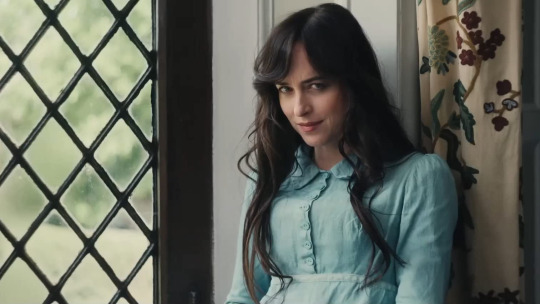
The Georgian era costume drama will always be as much an obsession of Hollywood and the British studio system as are the World Wars and Westerns. We will see adaptations of the works of the Brontë sisters and Jane Austen until the end of time. But as with our current crop of Revisionist Westerns, recent takes on the material have sought to say that, yes, this is still content for today. Autumn de Wilde captured effervescent female proclivities in a vibrant palette with her whip-smart take on Emma and Armando Iannucci’s satirical take on David Copperfield demonstrated how the failed grind of the “hustle” has been in place for centuries. Grading by this meter stick, Carrie Cracknell’s iteration of Persuasion falls short. It certainly reaches for these highs. Where Emma uses subtly modern silhouettes and aesthetics in its costume design, this Austen adaptation casts a wide net in costume design and seeks to put its characters in compromising situations. Copperfield brilliantly folds in on its own literary source by emphasizing in its structure how it is a story within a story. Persuasion opts for direct address, leaning on Dakota Johnson’s raw charisma to leverage its social commentary. But all the same, it doesn’t quite thread the needle. Anne is funny and winning, the situations she is thrust into ridiculous in their mannerisms. And yet we’re expected to weather countless Millenialisms like “I’m thriving” paired off with Anne pounding wine straight from the bottle or countless numerical ratings of eligible bachelors. Anne as a woman outside of her own time is winning enough; let her glance knowingly to the audience every now and again, bring them into her world as a means of release. Extra piling on of that sentiment just causes the ship to founder. All’s I’m saying is, let me look into Dakota Johnson’s eyes more.
As performance elevates this particular angle, so does performance lead to its demise. Again, Dakota Johnson is faultless. She seems exactly on the wavelength that the film needs her to be, just as self-aware as the script calls for. Always perfect, Richard E Grant is on a similar level, just as flighty and overbearing as that sort of patriarch ought to be. The issue comes more with the boyfriends. Wentworth, the object of Anne’s desires, is doe-eyed and giving that Jon Snow energy, but is he supposed to be in on the joke? Is Anne supposed to be self-aware and yet fall for some sort of Navy himbo? He says the right things, but just as often plays the weird sulky layabout who would take to the sea at any moment. His competition comes in Anne’s cousin Mr Elliot (ew British gentry marriage customs are gross), who just plays out chad-bro vibes and yet Anne falls for him at least a bit. At least they’re better than Louisa, who just yeets herself off a pier onto the concrete because apparently trust falls weren’t a thing yet.
THE RULES
SIP
HELLO FELLOW KIDS moment.
A rabbit appears onscreen.
Anyone makes a The Office style face straight to camera.\
Someone says ‘Wentworth’.
BIG DRINK
Large intertitle text.
Someone speaks a non-English language.
Ann boozes it up.
5 notes
·
View notes
Text
Sanditon Season 2: all the news & my thoughts
So, we're getting not one but two new seasons of Sanditon! After a year of tremendous effort on behalf of the Sanditon sisterhood who kept the fandom alive, we'll be looking at a new season. Although I think the biggest thank you probably goes out to Bridgerton, which showed that romance, regency, a diverse cast and butts are a perfect mix to lure audiences.
I want to take this moment to reflect on what I think we'll win, what we'll lose and what we can expect in the future.
1. No Sidlotte HEA
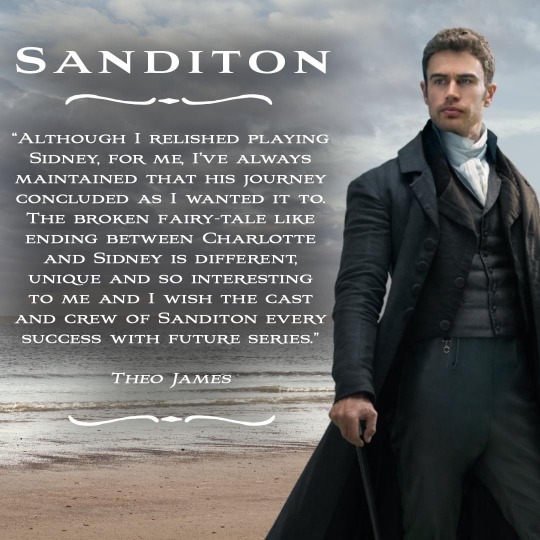
This is probably the most heartbreaking salty news we could get. But I know Theo James, he likes new projects. And after divergent's disaster, I can't blame the boy for not wanting to hang onto another franchise. As a fanfic writer, although mainly an Esther/Babington one, I broke my head for over a year on how to get Sidlotte together. I had to imagine the grandest schemes to get them together. Tom needed 10 000 pounds in less than a month. Even Babington was probably not worth that much. That's over 6 million in today's money if adjusted to inflation. Regency era's England's top 1-2% made that in a full a year, and most of that is probably in assets and investments. And they don't just get to keep that money, most used a good chunk of it to keep their estates running and to pay their staff. Anyone know someone who has a casual 6 million lying around?
There's only two realistic solutions: either have Eliza die: which would be cruel and take years (unless you kill her in childbirth 9 months in), or create a grand scheme that would take months and see Sidney, Crowe and Babington actively work hard on their 'business' while in the meantime Charlotte, Lady Denham and Lady Susan get everyone including the prince regent to come to Sanditon. I kind of accepted they would have a hard time getting out of that plot twist. It was likely that Sidlotte could not be endgame.
Personally, I never felt a strong connection to Sidlotte, and had hoped that Charlotte, like Jane Bennet, would go to London with Lady Susan to recover from her heartbreak, and I kind of hoped James Stringer would eventually go down there for his apprenticeship, where a sort of Captain Wentworth-like situation would come to exist where he is a young man trying to make something of himself. I know Charlotte didn't love him. But I also knew that Charlotte wanted adventure and perhaps needed to grow as a person. But in the new season she'll probably be a bit jaded, closed off, and depressed. And will probably need a softer more available man. Growing up goes with swinging to extremes. She was an open optimist at the beginning, and eventually turned to the opposite, not letting her emotions shine through and being very guarded (@miss-holly-goes-lightly did a wonderful post on this). Adulthood is finding a good balance again.
So while I am saddened, because this brings along a long set of questions like: "Does Sanditon still take place in Sanditon then?" "Where will Sidney live, will he then live in London with his wife?" "Why doesn't he come help his brother the next season or visit his family, as we know Tom will make a mess of things" The show will have to answer these questions in a believable manner.
2. No Beaufort twins
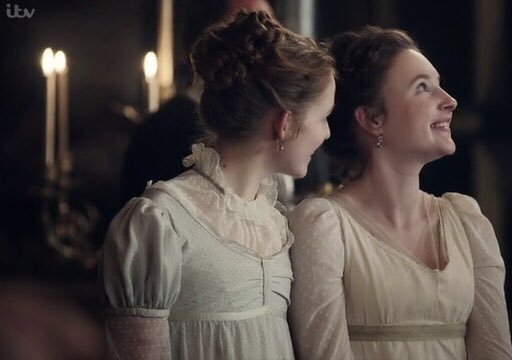
Mollie Holder said on her instagram that the Beauforts wouldn't be returning. This leads to quite a few questions like: where will Georgiana stay then? What will be happening to Mrs. Griffiths? Will Georgiana be her sole ward while the Beaufort's absence is explained as them having married or having become governesses?
3. Who remains aboard
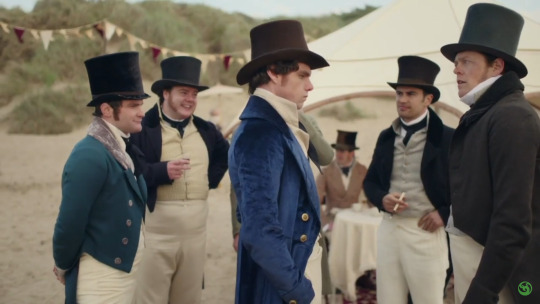
Rose Williams is definitely on board. It's also pretty certain Tom will be there again. Lady Denham is also likely to return. The child actors and their parents were willing, but worried about their increasing age a few months back. Old Stringer said he'd have loved to be part of Sanditon again and to see it continue, but he's well... dead on the show so he won't return. So who will join Charlotte?
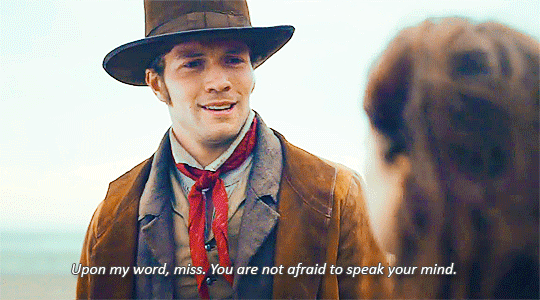
Leo Sutter might not return. He plays an important role in the next spin-off of vikings. Vikings has a new season each year. On top of that he's currently busy recording Gateway 6. We don't know how long that might take. And perhaps by the time filming ends he's required for the next season of the Walhalla series. Leo Sutter is a rising star, he might not even have the time to return. Especially for two seasons. At his age and point in his career, he needs to cement his name, or he'll remain b-list while he has a-list potential. So he might have to give up Sanditon for his career. It's sad, I'd love a Stringer/Charlotte future where they both grow to being suitable for each other while becoming people confident in their own abilities. But in the end, I would be alright with it, as Charlotte didn't express immediate interest in him. Writing him out would also be fairly easy, they could just write that despite thinking he had to stay home after his father's death, he went to London in the end under Charlotte's encouragement. Perhaps he could then come back for a guest appearance.
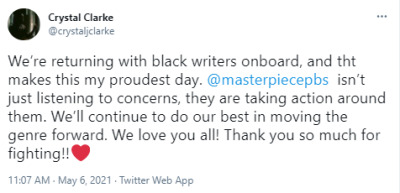
Crystal Clarke will reprise her role as Georgiana. Clarke has, since Sanditon, spoken out about the sometimes tone-deaf director and scriptwriters. She had to step in a few times to make sure Georgiana was done justice. She also said she hoped Georgiana, if the show was continued, would get the space to breathe and be independent, instead of playing a minor role as token black friend of Charlotte while under the control of Sidney. It will be complex to have her return without involving Sidney, as his character will have to be written out. I imagine this can be done with a timejump, but the timejump would have to be 4 years to make Georgiana 'of age' as she is 17 in the show. They'll probably place her under someone's care while saying Sidney is "still her guardian, but away". Georgiana is, in my opinion, an essential part of Sanditon. Bridgerton showed the world wanted to see diverse faces. Austen wrote a black character as a wealthy and desirable woman. They simply have to do more with her in the future. Clarke will reprise her role, this time with black writers to do justice to her character. I'm excited to see what will be done.
The actor who plays Arthur, Turlough Convery, is a good actor and mostly in period pieces. However he's never overly in demand, and usually stays with shows for multiple seasons. I think he's quite willing to come back and it means Georgiana would have a friend. I also hope they delve into his character, especially after his "I don't think i'll ever get married".
Matthew Needham and Mark Stanley, Crowe and Babington, are Sidney's best friends. It will be hard to have them come back without them explaining why Sidney is never with them. But I believe they would work well as a duo: the drunk and the one braincell are a fun dynamic. Both are not much in demand, despite that I quite like them as actors. So we might see them returning. Their return would also be vital for the return of a few other characters:
Their return would also be vital for the return of a few other characters:
Charlotte Spencer's Esther Denham is married to Babington. Without Babington returning, how can Esther? And vice versa. Their storyline was also the main romance for me and a big part of the last few episodes. They kinda need to return. Babington is also Sanditon's access point to high society. To cash in on Bridgerton's success they should search that royal connection. Babington is friends with the Prince Regent. On top of that he has the most money. If he hosts a party and Charlotte is invited, this is where they get those grand-bridgertonesque scenes.
Lily Sacofsky's Clara had a romantic subplot with Crowe. In their final unaired scene they went to London together. She could return. However, the chances are quite slim. Clara is in London, and Sanditon takes place in Sanditon. Unless Lady Susan takes Charlotte to London for a while and she meets Clara and Edward there, cooking up a plan to get back at Esther and Lady Denham.
4. Predictions
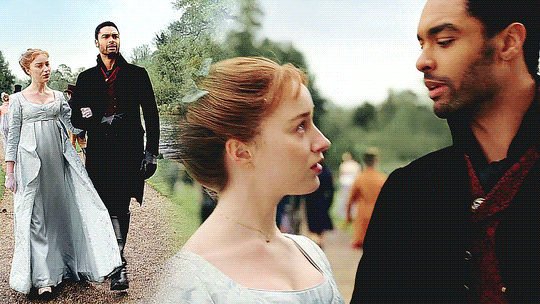
There's no words to describe the popularity of Bridgerton, so this WILL influence Sanditon. I predict: more sex, more scandal, and even more ahistorically modern ideas and characters, multiple female characters and multiple male characters that each get screentime and their separate storylines and developments like in bridgerton, instead of just Charlotte's pov we follow. Glamorous scenes. And more POC.
The season will start with a timejump in all likeliness (as it is easier so they don't have to focus too much on her grieving). Charlotte will catch us up with what has happened while perhaps narrating over some letters she's written to georgiana and lady susan. She'll return to Sanditon during a summer. Sanditon will have been partially rebuilt with Eliza's money, and many activities will be planned. Sanditon will be in some kind of trouble. Charlotte will still be a planner. Her being very actively involved in things and having a vision was one of the most alluring parts of her character. In the books there was a rival town Tom hated. That might be a bit tricky to adapt so they could introduce some local competition for attention around Sanditon. A local duke hosting parties could overshadow tom's events. Or the social season in London could lure everyone there instead of to Sanditon. Charlotte will try to help Tom with this while getting reacquainted with everyone still in Sanditon, and hearing about the reasons why Sidney/Esther/Stringer/The Beauforts (to be seen) aren't in the show anymore. She'll also rebuild her relationship with Georgiana.
Then one day for an event Charlotte will invite Lady Susan, who will invite her to the London season to get over her heartache à la Jane Bennet. Charlotte will join Lady Susan to lure a crowd to Sanditon. There, she'll be confronted with some of her demons of the past season. Perhaps a pregnant Eliza Campion makes an appearance to rub it in Charlotte's face. In Sense & Sensibility Margaret discovered Willoughby's relationship in a most shocking manner in an almost public setting. Sanditon likes to nod at all Austen books so this could be a nod at that book when Charlotte discovers unpleasant news in a public manner. Charlotte will congratulate her and wish them happiness, and afterwards either a girlpower moment could happen with Lady Susan or Georgiana supporting her, or a love moment. Mrs Campion has tried to talk Charlotte down in front of people in the past, if she did it again, a new love interest could step in at that time to compliment her and then take her off for a dance. That could be an emotional moment for her, as she realized her feelings for Sidney in London during a dance the last time around as well. And she could have her cinderella moment by excusing herself and running off after the dance, uncertain of her feelings. She'll have some grand balls, might be harrassed by a man and risk a scandal, or try and prevent Georgiana from ruin during a scandal.
At the last moment she'll succeed in her goal and lure a crowd to Sanditon's events that will put Sanditon on the map. Either the local competitive duke, or someone from London will be impressed with her, but she won't be ready to marry yet. I trust that by the end of the second season, she'll finally have a realisation that she's quite happy with how she's living her life and how good her work is, and that she has finally stopped feeling sad. So the second season will stop with her atop a cliff, letting go of the traumatic loss she suffered on that same cliff a season before. By the end of the season, one or two love interests will be set up for the last season.
So the nudity and big romance will have to come from elsewhere. Georgiana will get more agency and action in the next seasons. She could be trying to tempt Charlotte in joining her adventures as a single wealthy independent woman. She might even leave to find her place in the world via boat, returning to where she was last truly happy: Antigua. The second season could maybe end with Charlotte overlooking Georgiana's boat leaving from the previously mentioned clifftop. Another option is Georgiana falling in love with a local man and taken an interest in the town. Financially speaking, Georgiana could be the only one able to save Sanditon. But I don't think she owes the town anything. Another option is the writers focus on Georgiana navigating her relationship with Otis, who might be back home for a holiday after navy duty. We could also see some political debates à la Poldark S5 about freedom, servitude, independence and so on. The first plan for Georgiana doesn't even have to exclude the second, she could decide to sail away with Otis to find their place in the world. In any case: race shall not be brushed under the carpet and Georgiana will kick some shins on her way to her happy ending. In Jane Austen, we have rarely seen a woman who tried to elope, or escape her guardian, get a happy ending. Georgiana Darcy, Eliza Williams, Eliza's mother, ... they're all tragic tales of women falling for bad guys who try to steal their virtue or take their money. And in the end they always become dependent on men again. I hope in Sanditon Georgiana will learn and grow herself, instead of being coddled by men. A lot could be done.
Esther and Babington could be a very cool insert if the actors join. They can really connect the high society to Sanditon. They could host balls, invest in Sanditon or drive the London plot. But they can also be an emotional backbone to the show. Esther married Babington, but she wasn't in love yet. I'm not a fan of the edward/Esther angle. After all he did, I rather she hated him with burning passion and never spoke to him again. But he could try to blackmail her and ruin her reputation in London. Perhaps become some kind of Lord Whistledown. With Charlotte coming to Esther's aid. Esther's plotline could be about learning to trust people and open her heart again. Perhaps she could have a conflict with Babington about him wanting a family and she still being uneasy with marriage, let alone children. Maybe they could have a fight, with one of them going to London. In their separation they might realize they love each other. And then the other comes back home from London with Charlotte and they fix everything. Another route is them having a fight, Esther going to confront Edward or Clara about their blackmailing or maneouvring. Babington thinks it's because she doesn't love him, but actually it's because she loves Babington and wants to be rid of her past. But she gets into an accident and Babington only realizes the truth later on, leading to a happy ending.
Other things I'd love to see: Mary finally growing a backbone and telling Tom to either be open about his affairs and finances or be gone. Arthur and Diana growing a backbone and telling their brother he's a fuck up. Charlotte realizing Tom is stupid. Lady Denham appointing Charlotte or Arthur to head of Sanditon after showing their worth an entire season. Tom being repentant. Diana getting over her fears. Arthur getting a love interest. Crowe being in Sanditon, I just love him. Kisses. Healthy love interests that aren't broody and traumatized and in need of fixing by women. Jane Austen's men need to do their growing ON THEIR OWN. And then they earn their brides.
5. What we'll lose
- A Sidlotte ending: once the new season comes out, Sidlotte is no longer headcanon.
- A happy Esther/Babington ending: they married and looked happy, despite Esther's rushed turn around. If they're in the new season, their marriage won't be perfect. They'll have conflicts, just for plot. Whatever headcanons we had for them will probably be falsified. We might come to dislike them or their relationship. I've seen almost all my ships crumble to dust on the rocks of multiple seasons dragging out relationships and piling on conflict just to keep it interesting.
- A part of what made Sanditon Sanditon: we'll lose many faces we've come to love. And the dynamics and relationships will therefore change a lot.
- Fanfics become dated: I know it is the problem of every fandom, but it's one I regret all the same. Part of why I love Austen fandoms is the fact that the books are written. The characters and relationships won't change. With 2 new seasons coming, all fanfics out there will become dated. The millions of hours authors put into Sidlotte fics will perhaps become barely read when Charlotte gets new love interests. All the headcanons I and many others wrote down for Sidlotte, Esther/Babington, Charlotte/Stringer, will officially become silly fantheories. I've been there a couple of times before that shows changed the entire course and personality of certain characters and then you can't help but feel exhausted and sometimes annoyed because these are your babies and you had dreams for them, and the writers took them in directions that sometimes don't do them justice. But it's canon so you gotta accept it. Sometimes fantasy is nicer than a writer toying around with storylines and characters just to create drama. And I'll have to write my characters in a new way that fits the characters based on the info from the new seasons. I might fall out of love with them. Ah, the burden of being a shipper weighs heavy.
- Perhaps we still lose a HEA: Season one ended with a happy babington/Esther and an unhappy Charlotte who learned a lot, and a Sanditon that was saved. Although Sanditon has been extended for two seasons it's possible that if the ratings for S2 aren't good they may still cancel the third season. If they don't learn from their mistakes and end season 2 on another cliffhanger even Esther's relationship and sanditon may be at stake. If they're getting 2 seasons they will also not marry or engage charlotte in the second, meaning Charlotte will still be single by the end of the series if they cancel season 3. The whole reason we wanted more seasons was for charlotte to have a HEA. So I'm really fearful that she'll be put in another hard spot. They at least need to get her happy by the end of S2.
6. What we'll gain
- More sanditon content
- More regency era content and images and music which is always lovely
- Seeing our favourites again
- Hopefully we get to see new challenges and romance and humor and tense moments and scandal and drama that will be fun to watch
- A Georgiana story arc: a black woman in a realistic historical setting living her life, being wealthy, and England just having to Deal With It. And as cherry on top she'll be written by black writers.
- Happy endings (hopefully)
- New hot men! This is a guarantee
- Perhaps LGBTQ+ representation with Arthur
- Frustration at Tom's antics (guaranteed)
- Maybe some interactions with Charlotte's siblings
- Esther Babington content
- New material to write fanfics and metas about
- Over 8 hours of viewing pleasure
#sanditon#sanditon season 2#sanditon season 3#sceptical fanalyses#sanditon predictions#charlotte heywood#esther denham
25 notes
·
View notes
Text
The sleepy mood of the class made a three sixty turn the moment Professor Callenreese walked into the classroom.
He was a rather strict looking human but what he taught was effective. In fact, Andrew would go so far as to say that he was the only Professor that he actually respected in their University. Sure, he was younger than the others but he was always focused about his subject, knew his students, was never partial, gave extra material when needed, took revision classes and a whole bunch of other things that made him the esteemed Professor Callenreese.
It was through his classes that Andrew figured about that literature wasn't so boring; it had it's own essence that was to be appreciated. And, well, Andrew was walking that road.
"So, Jane Austen? Has everyone done their research?" Professor asked when he had dropped all his material on the podium and walked to the centre of the class.
They didn't have to write anything; the research was for their own benefit. Besides it was a pretty interesting topic: critisize the movie adaptations of her books. In that way, he was ensuring that the students had also read, or at least glanced, through her books. Did he mention that Professor Callenreese was damn smart?
Trish, who was sitting beside him, had done one hell of a research. She'd probably read every Jane Austen book there ever was and had started casting people in an imaginary movie that she was directing and producing. Andrew knew his friend.
"That is quite some research you did there, Tristan." William pointed out.
"Please call me Trish. And thank you, if you want some information, you can take it."
Just as Trish was passing the papers to William, Professor Callenreese called him out. "Mr Carter, if you'd pay just as much attention to me as you are paying to that conversation."
"Sorry, professor." He said sheepishly. Professor waved it off and asked him to discuss his research had he done some. Just as William was about to speak, someone knocked on the door.
And that's when everything changed. Or, to be precise, Professor Callenreese changed.
That man was shorter than professor and he looked like a student. He had round framed glasses, just like professor's.
But the best part was professor's reaction. He looked spell bound just looking at that kid. His eyes widened minimally and he just...stopped functioning altogether.
Interesting.
"I was asked to hand over these papers to you, Mr Callenreese." Then he smiled and pretty much looked like the human embodiment of the sun.
And was that a blush on professor's face...?
Very interesting.
The kid walked to Mr Callenreese and handed him the papers, but he didn't just go. He made a small talk with him. In the middle of a class.
"Are you seeing what I'm seeing?" Trish whispered.
"Tell me Trish, doesn't Mr Callenreese look like he has a crush on this guy?" Evelyn from the bench in front of them pointed with a suggestive tone.
Trish bent forward, "He does, doesn't he?"
"He looks pretty embarrassed to me." Andrew gave his opinion. Trish and Evelyn gave him the nonchalant look of idiocy.
"That's called blushing, Andrew." Evelyn said.
"Seriously, what are you doing in a literature class if you can't even point out romance when you see it."
"Well, you both quite literally dragged me here!"
Before either of them could respond, they heard a soft chuckle from... Professor Callenreese. Well.
"Guess what, that guy's actually a guest lecturer." Steve passed his laptop from where he was sitting on the other side of Andrew.
There they read that his name was Eiji Okumura and he was taking a course on photography.
"This is the kind of shit I wanted to watch when I paid for the University." Evelyn said as he wiped a fake tear from her eyes.
"Technically, your bank paid-" She glared sharply at Andrew. "Sorry."
"We gotta take this course." Evelyn and Trish declared in unison.
"I'm not-"
"Who's asking you?" He sighed and rested his head on the desk. It was the same charade. He was going to take that course. Steve laughed knowingly and clapped his back saying that he'll live.
In front of them, Professor Callenreese was in his own world. It was rare to see him so lost. He looked comfortable in that small bubble that Mr Okumura had created around him. Almost everyone in the class was seeing it and we're just as shocked as they were. Andrew smiled to himself. He was glad that professor had a possible partner for himself but he didn't particular want to meddle in that.
It was only when someone's phone rang a little too loudly, the pair came out of their trance. Mr Okumura smiled yet again and left the class, leaving a blushing Prof Callenreese behind him.
He coughed and somehow his blush darkened.
"So where were we?"
Everyone in the class inaudibly gasped.
Professor Callenreese never lost his flow.
Interesting. Very interesting.
37 notes
·
View notes
Text
a truth universally (un)acknowledged | chapter one
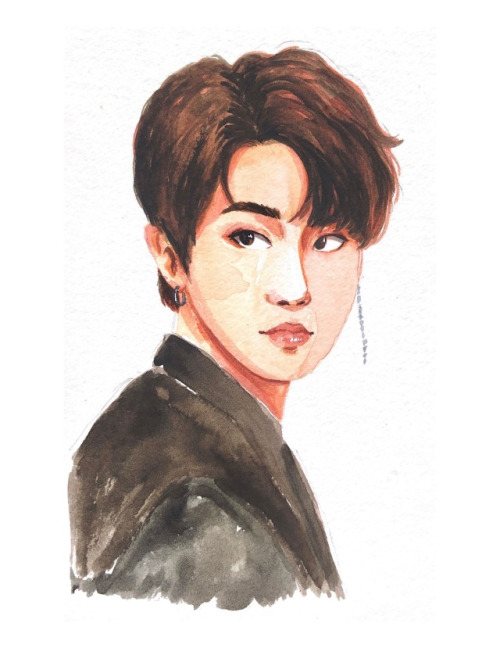
(artwork credit to @jisungieart)
genre: rivals-to-lovers, fluff, college au, theatre au pairing: han jisung x reader chapter word count: 1.9k warnings: suggestive, swearing request: yes (@jisungsjheekies)
✧ masterlist & tag list info in bio ✧
{prologue} {chapter one} {chapter two} {chapter three} {chapter four} {chapter five} {chapter six} {chapter seven, part one} {chapter seven, part two}
chapter one
“It is a truth universally acknowledged, that a single man in possession of a good fortune, must be in want of a wife.” — Pride and Prejudice by Jane Austen (1813)
✧・゚: *✧・゚*:・゚✧*:・゚✧・゚: *✧・゚:・゚✧*:・゚
It was in freshman year of college, the sixth week of classes, in Shakespeare for Theatre Performance Majors (THEA 200), halfway through the class period, just as the class prepared to perform their first monologues. You’d wanted to be assigned one of Prospero’s speeches from The Tempest. Instead, Jisung got to play Prospero and you ended up with one of Rosalind’s clever monologues from As You Like It. Not that you disliked Rosalind as a character, you simply wanted to have the fun of 1) not playing a girl for once in your life, and 2) wearing a long robe and getting to wave around a long staff. (There are few things that delight more than strutting around like some self-important wizard).
You did your best with the monologue, pretending to hide behind a tree at times and speaking to an imaginary Orlando at others. You were as pleased as a cat who’d caught a canary with how well you’d performed, and the fact that your professor gave few notes made it all the better. You liked being the best at anything you did. Jisung was called up to perform after you, and he had brought a robe and a staff. You scoffed a bit because, until that day, he’d been a fairly good actor but nothing extraordinary. Oh, how wrong you were. Yes, his participation in class thus far had been exemplary, his integration of notes seamless, and his general affect lighthearted and kind. But again, he’d only been a fairly good actor, nothing extraordinary. So, seeing him play Prospero as he called down the elements to wreak havoc at sea was unexpected, to say the least. Jisung seemed to put every ounce of energy he had into the performance, and the class clapped when he finished. He, like everyone else, had received notes from the professor, but they were cursory comments. Jisung had done the proper research to play Prospero as well as he could, and then presented the monologue better than you ever thought possible—from a college freshman, that is. And, you hated to admit, better than you could’ve done.
Thus, your rivalry with Han Jisung began.
At first it was distinctly one-sided, but you performed so well on the mid-term that Jisung noticed he wouldn’t be the sole star of the class. From then on, you and he vied for many of the same scenes to perform, the leading roles in the plays and musicals, and even the chance to mentor younger students once you were upperclassmen. Also, you consistently tried to perform better than each other in everything you did. The unofficial title of Best Actor in the Department (created by you and Jisung for your own purposes and, somehow, represented by a child’s gaudy tiara) bounced between the two of you. It must be said, though, it became more and more like a game with your steadily maturing attitudes and values. However, the one thing you both flatly refused to do was play love interests. If the two leading roles in a play were love interests, you would find different roles for which to audition to avoid that awkwardness.
And now, you were a senior and the reality of your impending graduation had just set in.
As you walked down the hall to the costume shop for your shift, your best friend and roommate, Miri, caught your arms and swung you around.
“Y/N! Babe, did you see the posting? They’ve announced the next production!!” Miri was practically bouncing up and down as she spoke, which wasn’t unusual for her. “It’s a new adaptation of Pride and Prejudice—who are you going to audition for?”
“Wait, really? Pride and Prejudice? I didn’t even know there was a stage version of that,” you said as Miri swung your now linked hands back and forth. “Hmmm, I guess I could audition for Jane? I don’t think I’d go for Elizabeth, since I really don’t feel like carrying a show next semester, you know?”
“But you’d make such a good Elizabeth Bennet! You have to audition for her!” Miri pressed you.
“Mir, no, I don’t want to have too much going on. Jane will be enough for me. Plus, I’m sure everyone will want to play Elizabeth—she is the lead, after all,” you said, finally extracting yourself from your friend’s grasp.
“But Y/N—” Miri whined.
“Come on, I want to ask if we’ll have to do extra shifts in the costume shop with the show coming up,” you interrupted and continued down the hallway.
When you got off from your shift sewing and repairing garments used in the last show, you went to the audition sign-up sheet on the Theatre Department Message Board. You saw a small knot of people huddled in front of the board, all waiting excitedly to put down their names. You joined the group just as Jisung sauntered up and stood beside you.
“So, Y/N, should we break our rule and go for Elizabeth and Darcy?” Jisung asked, knowing full well you’d never agree to it. He liked to tease you and you liked to tease him, just as long it didn’t end up as flirting. That would be bad.
“Jisung, you know that’s never gonna happen. I am never going to play love interests with you. My first choice is Jane, and after that I’ll just let Professor Greystone decide,” you said as you rummaged in your bag for a pen.
“Ah, the calm and lovely Jane . . . so you’d rather have a simpler role, huh? Too busy this year?” Jisung teased.
“No,” you replied sternly, “I’d just sooner have less to worry about than more. Who are you auditioning for, anyway? Wickham?”
“Nah, I think I’d do best as Mr. Bennet—play to my natural wit,” Jisung said casually, sweeping his hair up off his forehead. “It’d be perfect!”
“Sure, sure. Whatever you say, Jisung.” You’d finally found a pen and began to write your name and your role of choice under an audition time.
Just when you’d finished, Jisung snatched the pen from your fingers. You were about to protest, but he’d already added his name to the list. Handing the pen back to you with exaggerated care, Jisung said, “See you at auditions, then, Y/N,” and strolled down the hall like he didn’t have a single care in the world.
You quickly glanced at the audition sheet again, and sure enough, Jisung had signed up for the slot right after you. Damn, that had to be the worst luck ever.
Two weeks later, the Department held auditions on Thursday and Friday afternoon in the main theatre. Most students auditioning were familiar with the space, especially those, like you and Jisung, who had performed in it before. The director, Professor Greystone, clearly wanted to see how each person reacted and adjusted to the size and acoustics of the theatre throughout their audition. The long hallway along the back of the theatre was full of students waiting for their time slot. It was eerily quiet, save for the occasional mutter as someone cursed themselves or their chosen monologue for one reason or another. Every fifteen minutes, the door would open to free one student only to swallow another into the maw of the theatre scant minutes later. All looked less stressed coming out than when they went in, but the tension in the air was thicker than strawberry jam.
You’d been thinking about the auditions for nearly every waking moment over the past two weeks. Jisung’s comment about playing Elizabeth and Darcy had, somehow, stuck in your brain like the worst kind of repetitive song. There was a part of you that wanted to play Elizabeth—she had some of the wittiest responses to the hidebound and often dull comments made by those of her social circle, and you aspired to be as quick-witted. But, you didn’t want to risk being cast opposite Jisung. You didn’t think you could bring yourself to act, truly act, even remotely interested in him as a lover. You leaned against the wall, reading through your monologue and your notes for comfort more than anything, trying to clear your head of all else. The temptation of playing Elizabeth just would not go away, though. After another five minutes of fruitless reading and rereading, you paused. What if I did audition for Elizabeth? you thought, scarcely daring to even think it. Jisung surely wouldn’t audition for Mr. Fitzwilliam Darcy, right? He wanted to play Mr. Bennet so he could, in essence, play himself. It wouldn’t hurt for you to add Elizabeth to your list of potential roles—it was just another option. You’d been cast in enough leading roles in the past that there was a good chance Professor Greystone wouldn’t cast you in one again. Right?
“Y/N,” came the sing-song voice in your ear. You had to fight the urge to hit Jisung in the head as you glared at the young man who made it his business to annoy the daylights out of you.
“What, Jisung. What do you want,” you hissed under your breath, trying not to disturb the ten other people still waiting for their turn. “I’m trying to concentrate.”
“Oh, just saying ‘Hi.’ Break a leg, Y/N! Hope you get the part you want.” With that, Jisung walked back down the hall to sit on the floor with his ever-present headphones pulled down over his ears. You guessed it helped him filter out distractions. Although, it did make Jisung seem especially cocky, though, as if he didn’t need to study his lines or do anything else before an audition.
After twenty minutes or so, your audition time arrived. Of course, Professor Greystone and the other faculty had some general questions for you before you performed. They made it seem like part of the audition process, but the questions were really an excuse to let students adjust to the space. No matter one’s years of experience, the additional time always helped. Thus, the questions were simple. Yes, you’d read Pride and Prejudice—several times, in fact. No, you hadn't been aware of a stage adaptation before it was announced for the spring. No, your spring schedule was not full yet.
“Do you have any other questions, Y/N?” Professor Greystone asked, setting down her pen for a moment.
“Well, yes. Could I add Elizabeth to my preferred roles, please?” You smiled sheepishly, knowing Professor Greystone had probably expected this.
“Of course, Y/N. I’ll consider you for the role, in addition to Jane,” replied your professor. “Could you perform your monologue for us now?”
With that, you took a deep breath, lowered your head, then raised it in character.
And then, you were done. You emerged from the theatre, a bit tired but happy with your performance. Jisung, who really was acting like your shadow these days, waited outside the door for his own audition.
“Break a leg, Jisung. You’d do wonderfully as Mr. Bennet,” you said, surprising even yourself as you gave the compliment.
“Thanks, Y/N,” Jisung said bemusedly as he watched you gather your things, settling your sweater and backpack on your shoulders. Still staring into space even after you rounded the corner at the end of the hall, Jisung bit his lip. Should I go for Darcy? he thought. There’s no way Y/N would audition for Elizabeth. She’s too scared we’ll end up being cast as lovers. Chuckling to himself, Jisung methodically put away his headphones, straightened his clothes, and took a deep breath. Opening the stage door, he thought, Hell, I’ll do it.
#a truth universally (un)acknowledged au#han jisung#stray kids han jisung#stray kids jisung#stray kids han#stray kids#stray kids fluff#stray kids fanfic#stray kids au#han jisung fluff#han jisung fanfic#han jisung au#stray kids college au#skz han#skz han jisung#skz jisung#skz fluff#skz fanfic#skz#bang chan#lee know#lee minho#seo changbin#kim seungmin#hwang hyunjin#lee felix#yang jeongin#jisungsjheekies#stray kids angst#stray kids imagines
271 notes
·
View notes
Photo
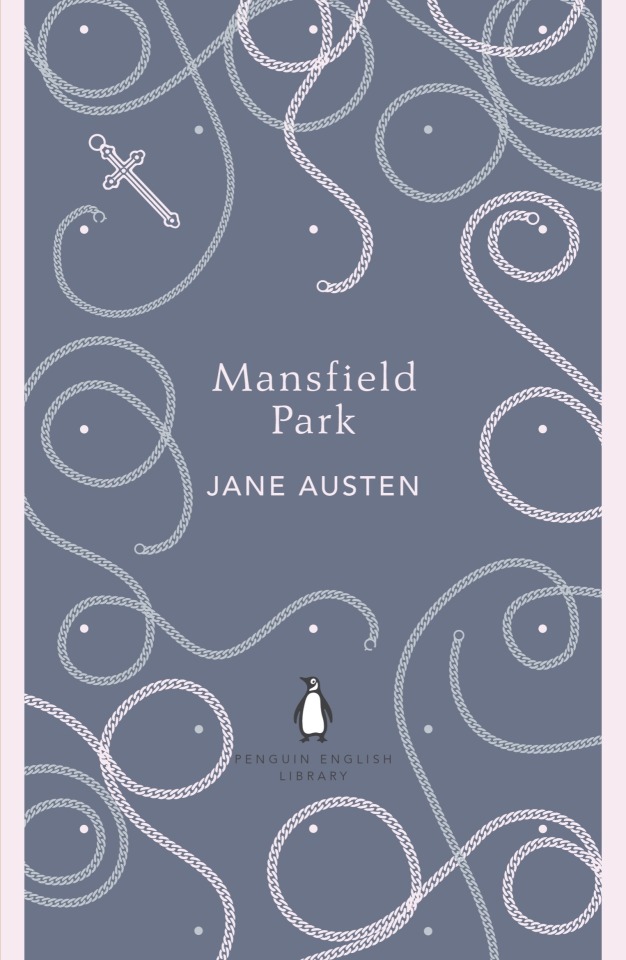
Finished: 27/09/2020
Mansfield Park by Jane Austen
Rating: ★★★★☆
Summary:
Fanny Price, an outsider adopted into her uncle’s family, loves her life of simplicity and tranquility. When the Crawford’s arrive to town Fanny’s life is subsequently thrown into chaos as flirtations, rumors and scandal ensue. Fanny must decide who she is and what she stands for and make the choice between what is easy and what is right.
Review:
The long answer:
My feelings after finishing Mansfield Park was that it was just “okay”. I was a bit disappointed because of how much I remembered loving the film as a teenager, but I did still enjoy reading it, even if I was a bit bored. I was always expecting more, waiting for Fanny to stand up for herself and stop being so passive. As I was reading, this passivity was one of the things I disliked the most. As someone who always has something to say, I found it hard to connect to Fanny’s stony silence. However, after just a week or so of contemplation and one re-watch of the 1999 adaptation, I grew to like Mansfield Park a lot more than I first thought. It’s still not my favourite Austen, honestly, it’s my least favourite, but I do have a strong appreciation now for Fanny as a character where I didn’t before.
When reading Austen’s novels most of us connect to characters like Elizabeth Bennet and Emma Woodhouse, Fanny Price hardly even gets a mention which makes sense; Mansfield Park is the least reviewed Austen on Goodreads, so maybe it’s just that Fanny doesn’t have that widespread recognition like the others. She’s also not as much of a big character in her story as the other heroines are in theirs. Emma revolves around Emma, P & P around Lizzie, but Mansfield Park is more about everyone around Fanny. She feels like a spectator to me; it’s the Crawford’s and the Bertram’s story and Fanny is just watching it all unfold. She’s more of a narrator than a heroine. While reading I thought that was a bad thing, it’s something that I’m still not totally in love with, but after waiting a bit and letting Mansfield Park fully sink in, I feel like Fanny and Mansfield Park on the whole are a lot stronger than they receive credit for.
Fanny has a sort of silent power that rivals that of Emma Woodhouse, a strength of character and conviction that could stand up even against our own Elizabeth Bennet. While it may seem like Fanny just lets life happen to her, and sometimes she does for sure, she really is just doing what she wants to, which isn’t a lot but it’s what makes her happy. Fanny is easily pleased, she just wants to live a simple life and all of these buffoons (AKA the Crawford's) keep getting in the way. But when her simple life is truly jeopardised by an unwelcome marriage proposal, Fanny doesn’t back down. Not even when Sir Thomas, the person she feels most indebted to, whom she holds to a very high standard of morality, says that she should accept. Fanny hates feeling like a burden or a nuisance but she couldn’t live with herself if she let her high standard of morality slip for the sake of pleasing others.
It’s in this that I see a lot of myself in Fanny, in fact without romanticising myself, I think of all of Jane Austen’s heroines, Fanny Price might be the one I relate to most. While I like to think I’m not as much of a buzzkill, I know that I can be because of my personal moral code which I am uncompromising on, which makes me less susceptible to peer pressure but more susceptible to looking like a self-righteous douchebag. We also share the same feelings of, not self-hate, but of believing that other people and their comfort are more important. Reading from Fanny’s point of view really helped me see a lot of my own flaws as I was pointing them out in her which was helpful but also a bit of a bitch slap when I just wanted to read a good novel... But Fanny’s flaws, unlike those of Lizzie, Emma, Catherine Morland etc., are never really conquered by the end of the novel.
There wasn’t really any straightforward character growth for the cast of Mansfield Park like there was in Emma or P&P or Northanger Abbey. While in those works the main characters all started off with at least one glaringly obvious flaw and over the course of the story worked to overcome it, with Mansfield Park it was more up and down, more grey. By the end there was no clear difference in any of the characters but they’d all gone through subtle shifts and changes. Mr. Crawford for example. I genuinely believe that Mr. Crawford would have changed to marry Fanny if not for his fatal flaw of needing to be liked by everyone. When Mr. Crawford saw Maria and she hated him, he would have done anything in his power to change that. He didn’t mean for her to fall back in love with him, but she did and the constant rejection from Fanny was getting to him and he slipped. His strides toward becoming good enough for Fanny then meant nothing and he relapsed into being who he was before. I was never a fan of either of the Crawford’s but Mr. Crawford became one of the most interesting characters to me, so much so that I kind of wish that he had ended up with Fanny. I think they would have challenged each other where Edmund only reinforces her ideas of how things should be, not to mention Edmund seemed less than enthused to marry her in the first place.
Edmund’s, almost reluctance, to marry Fanny in the novel seemed so out of place to me since all I really knew of Mansfield Park going into it came from the 1999 adaptation, which I last saw over five years ago. But upon re-watching it after finishing the novel I now see why I was so blindsided. The 1999 adaptation of Mansfield Park while well done and entertaining, is no true adaptation. It misses the essence of these characters and their complexity, reducing them to one-dimensional creators of chaos without any real motivations. We can see that Ms. Crawford wants to marry Edmund but we don’t get the “why”, Fanny accepts Mr. Crawford’s proposal to then refuse him the next day for apparently no reason other than to force him into the arms of Maria, something which goes against everything about Mr. Crawford’s character which I outlined previously. Even with Fanny and Edmund you can clearly see from the beginning that they both want to be together, compared with the novel where it’s only within the last two pages that Edmund basically shrugs and says “I guess I’ll marry Fanny since Ms. Crawford didn’t pan out.” I did enjoy the film but I can’t watch it with the book in mind because they really are so different.
I also just wanted to add that I know a lot of people choose to skip Mansfield Park because cousins, Edmund and Fanny, do end up together but I would actually highly recommend the read. Just do what I did and pretend that the Bertram’s are family friends and not literal family...
Also, I just spent the last few minutes editing this review because I got the name of the Crawford’s of Mansfield Park mixed up with the Crawley’s of Downton Abbey and had to find and correct each one. Lol.
9 notes
·
View notes
Text
This post contains spoilers for the whole of season 1 of Sanditon. READ NO FURTHER, LEST YE BE SPOILED.
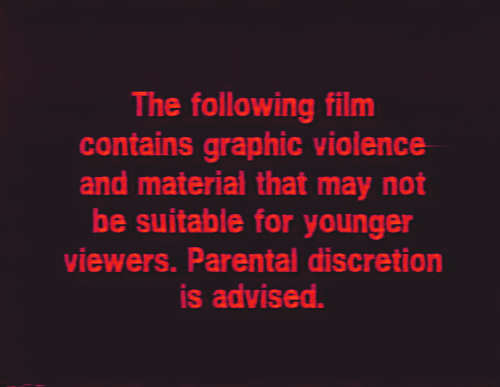
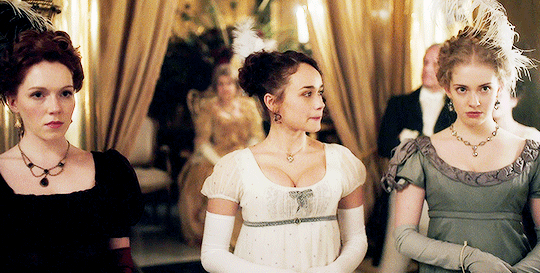
Ok, wtf.
I loved Sanditon and I don’t take all of the issues with it that the Austen purists have, but I must say I am still quite devastated by the finale.
My hot take: EVERTHING IS TOM’S FAULT.
If his dumbass wasn’t such a megalomaniac with piss poor charm, my baby girl Charlotte wouldn’t have had her heart broken. I firmly believe Sidney is madly in love with her, but as they’ve only known each other for a few weeks, his blood relations still take precedence. It sucks, but that’s the way about 99.9% of the world works.
For the people who are absolutely LIVID at the lack of happy ending for our heroes – here’s the thing, this is definitely meant to be an episodic series, so if everything ended happily for them in season 1, where the fuck do they go from there? I personally am depressed for my babies, but it breeds good drama and I desperately hope some American company will keep this thing alive as the Brits have abandoned it. Ugh.
Yes, this is a very spicy adaptation of an Austen work. You know what, yeah, it’s jarring at first. I’m used to complete propriety and only scandalous actions being relayed via hearsay, but you’re an absolute fool if you think I’m going to be OFFENDED if we ever get a legit Charlotte + Sidney LOVE SCENE. The looks they give each other alone are pure fire, but that kiss….so romantically feverish…imagine them TOUCHING EACH OTHER WITH CLOTHES OFF. Undressing each other????? I CANNOT. MY BODY IS NOT READY (it’s so ready, tho!)!
If we do get a season 2, what I really need to understand is WHAT THE FUCK IS SIDNEY’S END GAME? Does he expect to just fall back into rhythm with Eliza’s hateful ass? He means to devolve? He’d made so many baby steps with Charlotte in the right direction. I feel like Eliza’s snobbery and obvious insecurity will embitter him more than before. I definitely will not stand for him trying to coax Baby Char-Char into being his mistress. Frankly, she wouldn’t stand for it. You know we’re not lucky enough for Eliza to die. Baby Char-Char and Sid are just never going to consummate their hot, hot, spicy luvst? They can’t do that to me.
And Young Stringer is a doll, but he is far too sweet for Charlotte. She needs someone spicy like Sidney to keep her on her toes. Just being honest. And Sidney needs someone sweet like Charlotte to remind him that he doesn’t always have to be so stoic with strangers or always “playing the game” to secure financing for another Tom Parker Scheme!
I really needed Sidney to kiss Charlotte good-bye – propriety be damned! But perhaps he did not kiss her because that would mean he was truly saying good-bye forever and he doesn’t intend for that to be the case. Maybe somehow he’ll find a way for Eliza to have a “terrible fall” or maybe she’ll contract a fever. I just need that bitch to get out of the way so my lovers can win, ok?
As for Babers and Esther, I’m happy Esther finally let her guard down and let that good man love her. I still think he’s too good for her, but I do realize she was victimized a skosh by that disgusting excuse for a step-brother, Edward. I really hope that’s the last we see of Edward and Clara – but if so, what new nonsense will Lady Denham get up to if she’s not dangling her money in their faces and telling them how much they suck?
It’s been so refreshing to see a black woman as a major character in a Jane Austen piece. SO REFRESHING. It does sadden me that Otis’s gambling has ruined Georgiana’s chances at happiness. Still really unsure if he actually loved her. She for damn sure does. I just really wanted her to get her win and get away from Sidney since his mere existence makes her so miserable. But I do really love the quick friendship she and Char developed. Can’t have too many girl buds! Was not a fan of the misdirect of pairing her with Arthur. He’s a sweet buffoon and Georgi can do better.
Also, can we fucking talk about how Arthur & Diana’s relationship freaks me the fuck out? It literally took me until maybe episode 2 or 3 before I really grasped that they were NOT MARRIED. Honestly, I feel like I’m still traumatized by 10 years of Jaime & Cersei nonsense, so I just don’t like any super close bro-sis relationships. And it was very depressing to know that she was more than happy to guilt him into not pursuing a romantic pairing EVER for her benefit. If she were smart, she’d encourage him to find a rich old lady that would let her live with them. Then they could spend all her money when she croaked. Duh, Di.
Overall, I’ve really been impressed with Sanditon. I think all the casting is wonderful and the cast has great chemistry. Some of the dialogue leans a little too modern, but I would rather that than some boring, trudging piece that elicits nothing more than a “oh, that was nice” reaction. I’ve become obsessed with Sanditon. I cannot stop thinking about the possibilities for these characters and how absolutely SCORCHING the chemistry between Char & Sid is. It’s honestly my new favorite thing and I need MORE, IMMEDIATELY.
Alas, I must be content with simply re-watching on the PBS app until they rip it from my clutches March 1st. Seriously love it so much, I would buy the Blu-ray at PBS’s “WE REALLY NEED YOUR MONEY” prices.
Don’t mind me, I’ll just be over here looking for Char and Sid fanfics like a madwoman and just replaying everything in my mind, and imagining the love scene that has yet to be.
#sanditon#sanditon masterpiece#pbs realness#char and sid#charlotte heywood#sidney parker#this has been a text post#the parker brothers#miss heywood
74 notes
·
View notes
Text
Each year we the audience are presented with a plethora of shows that hope to secure a faithful audience in hopes of being good enough to be renewed. And each year we fall victim to at least one show that we came to love but sadly did it make the cut to come back the following season( Forever anyone? Timeless?) We are disappointed to say the least and utter a few choice words at the network that shattered our hopes of seeing our characters come back and entertain us for an hour each week.
This year however was different.
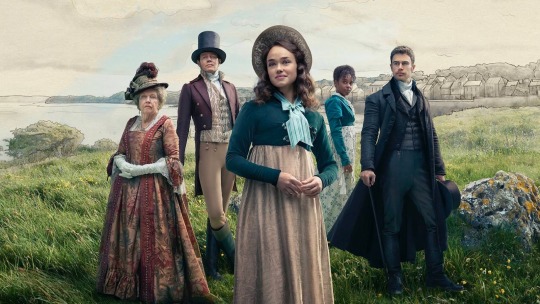
The fall of 2018 told us that an adaptation of Jane Austen’s Sanditon would premiere the following year. I was intrigued but at the time went on with my life and forgot about it. Then came the summer of 2019. An ad somewhere popped up about Sanditon. I pulled up the trailer on YouTube and right after sought out how I could stream the show ( I live in the US and really hate waiting months for shows to air here). So by the time I found it the first 3 episodes had aired. Needless to say I was hooked! Every Sunday I anxiously waited until the stream was available around 7ish and let myself escape to the world of Sanditon and all its glory. I watched by myself ( not really the hubby’s cup of tea) wishing my mom lived closer so that we could watch together. I laughed, squeeled, and cheered as the storyline lead us along Charlotte’s journey into Sanditon. At the time I did not have Twitter account but I wanted to see the reaction to the show. So I looked up the official account, waited on baited breath for the teasers that would get released thoughtout the week, and read all the comments from the fans without interacting with anyone. This made it so much more enjoyable as I could “experience” the show with others! So when our hearts were broken with Charlotte on the cliff tops in EP 8, we had each other to rant, rave, and cry to. But also hope. And belief. This was a JA story after all. And Davies had given us outstanding adaptations of not only Austen but Dickens as well( Little Dorrit I’m looking at you!). I mean this was the man that gave us Colon Firth’s Darcy... in a clinging wet shirt no less! So of course he would have to finish the story in a second season. Yes,he gambled but surely the network would NEVER not renew something created by him?! Or leave JA’s unfinished novel, oh I don’t know... UNFINISHED?! I mean that would be network suicide right?! But as time went on and there was no confirmation about a S2 we began to get worried... and then panic set in. And so I felt compelled to create a Twitter account and fight along with the Sanditon Sisterhood, as someone had named them, to convince ITV to renew another season. I have NEVER before felt this compelled to add my voice to a shows renewal. But that just speaks to the fantastic writing of this series. Through this interaction on Twitter and then the Sanditon FB fan page, I learned much more about the show-it’s writers, cast, and crew. The amount of talent that put this production together is truly remarkable! So as days turned into weeks then a month or so I had tweeted and retweeted alongside my sisterhood my thoughts, feelings, and desires to see S2 come to fruition. And then it happened. Our worst fear.
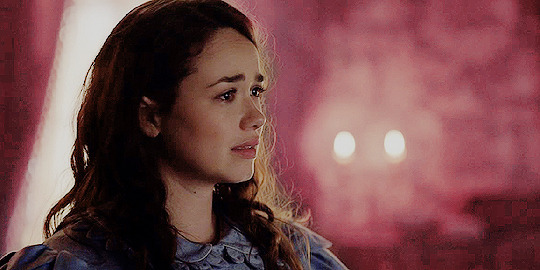
The “announcement” that ITV would not renew for a second season. So again we the audience found ourselves victims of the network and their archaic ways of measuring the success of a series-Viewing numbers on the night the episodes air. Because we the audience watch shows the same way we did 10-20 years ago right?
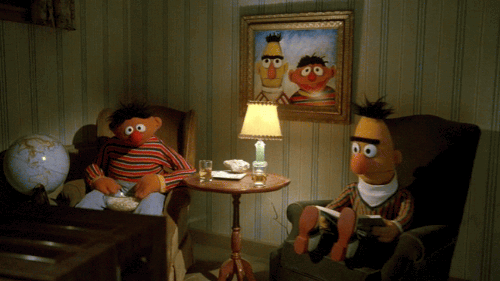
I clearly remember the nights Alias aired. ( 2001-2005) Mom and I would watch faithfully each week. If the phone rang it was not answered. No-I was watching my Sydney Bristow kick butt and no one was allowed to interrupt that time! And it was on a night I was always home, so no need to record and watch later. But as time went on and our lives began to change,so did how we watch TV. No longer did we need to make sure we were home to watch a show or worry if we forgot to set the timer to record our show, we could stream it later and watch the whole season at once when it was CONVIENTIENT for us! Yay!! I could make entertainment fit my schedule. I could watch when I WANTED to. However like anything that seems to good to be true -there was a catch. Those types of viewing do not count for the network airing your show. Nope. Nada.
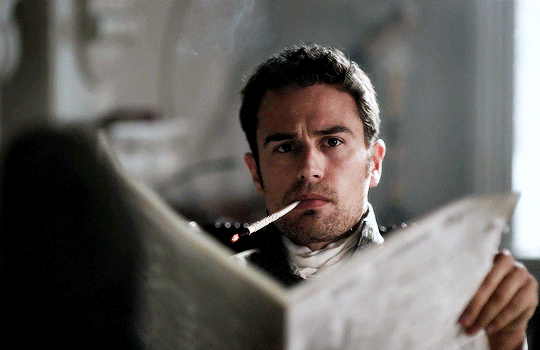
While media and streaming platforms keep advancing, we the audience (and our favorite shows) are held to a rule that is no longer applicable. We are punished for not capitulating to a newtworks old fashioned way of measuring the popularity of a show. So YT videos promoting the series, social media interactions, and streaming have no value in the eyes of many networks.
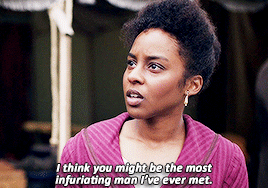
Yet this is exactly how we experience our shows in 2019! Heck we now have the ability to interact with the shows actors and some even reply back ( Jack Fox we love you!❤️). Sadly ITV saw no relevance in this. Only immediate viewing numbers counted. Viewing numbers that were counted against a terrible release date(bank holiday in the UK so many were naturally on holiday.) and a less then stellar promotion of the series. Still many tuned in and fell in love with Sanditon. I could go on and on about the terrific acting of the cast, the original music, character development, cinematography... but that is not the purpose of this blog. It is this-
Let us as the audience tell you by more then one measurement how much we love and support a series. Stop living in the past and embrace a new way! Get in touch with your audience and quit being tone deaf. We are your customers! We are your promoters! Give us the chance to show you our love for your shows! #renewsanditon #sidlotteforever
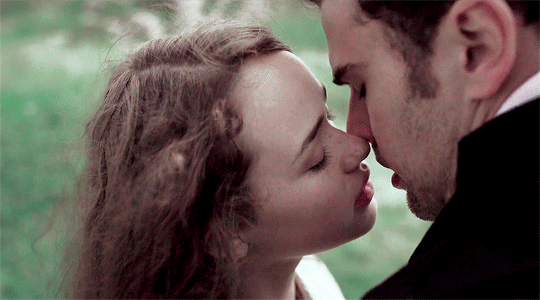
93 notes
·
View notes
Text
Good and Ridiculous
I’m not a great aficionado of Emma adaptations(aside from Clueless, of course uvu), I’ve always been more of a Pride&Prejudice viper myself uwu uwu, but Emma(2020) by Autumn de Wilde is really Very Good. My immediately impressions:
A good tagline to this would be “everybody thinks they know what they’re doing, and everybody’s wrong” u_u
shrinking and removing the written age gaps was a Very Good Idea, though there is ONE SCENE, where Elton snubs Harriet by dodging a dance with her via the excuse that he is “an old married man”(while being both young and only recently married), where having Knightley be a much older man(and a “confirmed bachelor” at that, long publicly disinterested in courting and marriage) absolutely adds to the scene, as having a genuinely older man publicly asking her after such a slight not only shows his compassion but also acts as an absolutely ruthless, and again Very Public, incineration of Elton(you are a MAN of the CLOTH for heaven’s sake!).
This version of Emma is a VERY rare example of a movie which presents marriage NOT as a breaking of families, but as a realization and binding together and growing of both families and communities. Admittedly that’s already there in Emma itself(every step in Emma’s path to marrying Knightley is her realizing and then abandoning the folly of her arrogance&condescension, then to truly value, and so reinforce, her connections to others), but de Wilde does an Excellent job of foregrounding that in this adaptation, espcl with the comic-lovablness of Emma’s father(played wonderfully by Bill Nighy here) and with her friendship with Harriet, and with a real&sensitive subtlety as well.
to wit: the treatment of his(and his oldest daughter, Isabelle’s) fear of illness. This is played to (sometimes brutal)hilarity throughout... and then the out-of-hand drop that Emma’s mother died of a sudden illness. The comedicness is never sacrificed and yet the realness and continuing presence and depth of that pain and fear is not only conveyed, but looking back you see it in what of the film you’ve already watched, and it explains all of it so heartbreakingly. And to then build off of that by showing -purely through Nighy’s physical acting- how Emma’s marriage is reworked to care for that pain(again, building on the theme, to strengthen her connections rather than sever them) is just really done so movingly.
Another good tagline for this movie: “Everyone is both Good and Ridiculous” u_u
And speaking of Nighy, there’s this exQUISITE look of surprise/dismay/disgust he gives a painting while touring Knightly’s house that had me in stitches. I had to stop the movie, rewind, and watch it again four times. I Loved It, Entirely u-u u-u u-u
Obvsl this is a comedy, and Obvsl it’s focused on the lives of the landed and monied aristocracy(mostly petit, though Emma&her father seem to be big fish in their little pond), but Austen was an astute observer of class in her day(if primarily focused on class-precarity WITHIN the gentry), and de Wilde does a good job of emphasizing this without straying from the source-material or breaking the setting? I mean: it’s certainly not a focus of the story, but that aspect is sort of implicitly conveyed by the filmmaking?? Idk; I was impressed by it but can’t really put it into detailed words, I need to think on it, probably read on it, and very likely watch it again.
speaking of the fish metaphor, de Wilde does an EXCELLENT job of using the Jane Fairfax:Emma Woodhouse::Frank Churchill:Mr. Knightley dyads to examine these issues. Obvsl, to point out Emma’s LACK of the refinement and society she aspires to(pointedly in the body of a fortuneless orphan who, by pure misadventure, just happened to grow up in London where she can be educated to the level Emma, as a provincial[albeit only a mere 16 miles from town] never could), but also, I would say, through Frank and Knightley. Frank isn’t treated unsympathetically as a cad here; the performance is certainly caddish, but there’s a(again X|) subtle sense of his rakish behavior being a ruse to divert attention from himself, Jane Fairfax, and their connection. One could surmise that, having spent so many years in London, he’s aware that ppl are always watching, and talking, and how easily information can get back to ppl who might hurt him with it(namely, his aunt who wants to use him to climb higher through an even wealthier marriage). Knightley, in contrast, is blunt and earnest because he can AFFORD to be; his fortune is secure in Himself, the Land he owns, and its productivity. Likewise, he can AFFORD to interact with his tenants, in a way someone like Emma or Frank is too concerned to do, because that interaction is economic for him and thus not only expected but praised in a landlord. OK the more I think abt this the more stuff I come up with, so I’ll stop there and with the observation that, really, it’s not a dyad but a triad with Harriet&Mr. Martin thrown in to each grouping(and also that Knightley and Emma are likewise examinations/critiques of each other).
This is a Very Funny movie.
This is a Very Painful to Watch movie, if you strongly feel second hand embarrassment.
Mr. Elton is the WORST.
Mrs. Elton is the WORST(until she’s not, and you realize Emma’s just kind of a snob).
Emma just straight-up disemboweled Miss Bates. That was VICIOUS. Like, seriously, the filmmaking around that scene really emphasized the cruelty of her comment, espcl in that context, it was So Excellent uwu
Ok, I understand now how ballroom dancing was, at one time, Very Horny(again: very good filmmaking: I’ll leave it at that u_u u_u)
Also very good casting&directing. Anya Taylor-Joy as Emma obvsl just grabs the camera in every scene she’s in, effortlessly, like she’s the Flipping Sun and it’s a sunflower, but everyone here is knocking it out of the park, constantly.
MIRANDA HART! Miranda Hart as Miss Bates is a Fucking Revelation >:| >:|
Emma/Harriet is Real u_u u_u so, So, SO Real u_u u_u u_u
Honestly I want a Queer reimagining/rewriting of this story Very Much u_u u_u
Emma’s a Rose u_u
ok Im gonna stop there
#Emma(2020)#Autumn de Wilde#Long Post#zA Reviews#Cinema#Movie Reviews#zA Commentary#zA Opinions#Comedy#Rose Lalonde#Gr8 Art#analytic posts
16 notes
·
View notes
Photo
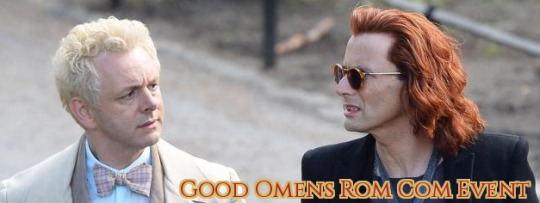

GO Rom Com Spotlight: @epi-vet
The most excellent @epi-vet (also Epivet on AO3 and epivet on Spotify) has claimed Persuasion to adapt for Good Omens in the Good Omens Rom Com Event.
For reference, here’s a little background about the source material!
About Persuasion: Eight years ago, Anne Elliot rejected Frederick Wentworth, the man she loved, out of a sense of duty and obedience. Now an ignored and faded spinster, she follows her financially stricken family from their home, only to be reintroduced to the now successful and wealthy Captain Frederick Wentworth. With their roles reversed and Captain Wentworth the eligible and wealthy bachelor, Anne navigates the scheming society that still tries to keep them apart.
We spent some time chatting about how the adaptation is coming so far, as well as future plans for it! Now, get to know @epi-vet a little better!
* * *
goromcom: You know how if you open a Tumblr chat with someone you haven't chatted to before, Tumblr tells you two things they post about? I wanted to tell you that yours reports that you post "about #geeky data and #good omens". I can appreciate someone with an affinity for geeky data. Can you share any sort of interesting geeky data with us?
epi-vet: #Geeky data is fun, but my favorite homegrown tag is #QuantifiedFandom. In the real world, I work with a lot of data for modeling and prediction. I liked the idea of using those skills to understand the fandom better by looking at the data crumbs around it. Right after I saw the show, I was intrigued by how quickly Good Omens playlists multiplied on Spotify. Then I did what any totally health sane person would do. I downloaded 300 Good Omens themed playlists and started crunching numbers. Throughout the summer and fall, more and more playlists were popping up. I did a second pretty exhaustive pull of 1400 playlists in December. I analyzed the most common songs, length of playlists, artists, differences between playlist themes (Ineffable Husbands versus Demon Crowley), and more. Two of the top four songs weren’t even in the show (#1 Good Old-Fashioned Lover Boy and #4 From Eden). Bob Dylan’s You Angel You is the most underappreciated Ineffable Husbands song. “You angel, you; You got me under your wing...” Really. Google the lyrics, we’ll wait.
I’m epivet on Spotify where you can find the top 100 songs from Good Omens-themed playlists, the top 50 Ineffable Husbands songs, and my own scene by scene playlist with links to a Google doc explaining each selection and identifying key lyrics because, again, totally healthy sane person here. I’m also running the GORomCom discord-created playlists as well.
goromcom: And I listen to those playlists a lot! Thank you! But on to your rom com! You chose to adapt Persuasion. Has this story been a favorite of yours, or is there some other reason you chose it?
epi-vet: I’m a longtime Jane Austen fan. I love how she pokes at the constraints and absurdities of her time. Persuasion is my favorite because the characters are more mature, more human. Anne breaks off her engagement with Wentworth, and while she regrets how things have turned out 7 years later, she also can still see the reasonableness of her choice. The story has one villain and some unsavory characters, but many of the characters are complicated people who make the best decisions they can (except for Anne’s father who is ridiculous).
The 1995 movie is infinitely better than the 2007 one; I will brook no argument.
goromcom: I wouldn’t dare! :) What's your favorite moment of the story, and are you looking forward to presenting it in your adaptation? Any loose plans for that scene that you can share?
epi-vet: Wentworth’s letter to Anne in the dramatic climax: You pierce my soul. I am half agony, half hope. Tell me not that I am too late, that such precious feelings are gone for ever. I offer myself to you again with a heart even more your own than when you almost broke it, eight years and a half ago. *swoon*
I’m still working that scene out, so I’ll instead share some fun I’m having making poor Gabriel my comic relief. The book opens with the Anne’s father reading his own entry in the Baronetage. His rank defines him, so reading a Who’s Who provides him the reassurance he needs. Gabriel begins my RomCom loudly reading his visitation of Mary, especially loving the “Fear not, Mary” line. He soon after complains to Michael “[the humans] don’t even cower before us. Really, when was the last time we had to say, ‘Be not afraid?’” He also serves as my Lady Dalrymple in the Italian concert scene from the 1995 movie. Aziraphale is trying to keep Crowley from leaving (due to genre typical misunderstandings), and Sandalphon is pulling him back saying Gabriel needs him to explain the buffet – he’s worried he’ll Fall if he eats shellfish.
goromcom: Oh goodness, so many angel/demon shenanigans. I can’t wait. Other than those details, do you plan to stick very closely to the beats of the original story, or make bigger changes?
epi-vet: I think one of the best Jane Austen adaptations ever is Clueless. When we watch a period drama, we view everything through a buffer of temporal distance. Everything is slightly foreign, and it can soften the impact that a contemporary reader would have felt. I suspect viewers of Clueless, in some ways, have an experience much closer to Jane Austen’s readers’ experience of Emma.
I’m taking the plot of Persuasion and applying it as closely as I can to our characters from the moment the tv show ends. I did lots of character mapping and tried to stay true to the heart of the work, like Amy Heckerling did to Emma in Clueless. I did end up with one original character because I just couldn’t figure out how to work the plot with only Good Omen canon characters.
goromcom: I’m actually a big fan of Clueless as an Austen adaptation too, so I like where you’re going with this.
Let me see if I can get one more tidbit out of you before I stop! What's an interesting decision you've made in your planning so far--a notable casting decision, a changing of venue, or some other plan you have to paint Good Omens all over your rom com?
epi-vet: Since I’m writing it as post canon in the Good Omens universe rather than putting Aziraphale and Crowley into Regency Britain, I get off easy there. I am trying to take a lot of the dialog between Aziraphale and Crowley from the show and flip it. So Aziraphale is the one who needs to do something or Crowley will never speak to him again. Aziraphale is unforgiveable. Also, I’m including some nods to the Good Omens book. Crowley takes the properly demonic activity of gluing coins to the sidewalk into the tech age with an app. It, of course, backfires spectacularly. I also have a hopefully charming and funny Golden Girls reference.
goromcom: Always down for a Golden Girls reference. Rose is my homegirl. But let’s leave some things undiscovered until your story debuts, and move on to the final question. I am blatantly stealing this last question from The Good Place: The Podcast, but here goes: Tell me something "good". It can be something big or small. It can be a charity you think is doing good work, or you can talk about how great your pet is.
epi-vet: RIPMedicalDebt. For pennies on the dollar, you can wipe out someone’s medical debt. For everyone outside the US, this is a completely bizarre concept, but it’s a big deal in the US. Medical debt happens when you lack health insurance or have limited health insurance. You didn’t charge too much on your credit card. You didn’t buy a house you can’t afford. Something happened to your health, you sought the care you needed, and you are now destitute. These debts don’t get paid back often so they get bundled and sold to various institutions. RIPMedicalDebt buys those debts cheaply and then forgives the balances owed. Individuals, community organizations, churches, and other groups have used them to do immense good.
goromcom: So important, and I had no idea this existed. Thank you for sharing it with us.
And also, thank you for sharing details of your upcoming GO adaptation of Persuasion, coming very soon now!
20 notes
·
View notes
Text
Let’s Go in the Garden - Ch. 10
We change the POV characters - several times.
I woke up from confusing dreams about Nightingale undoing his top button and/or wearing one of Bev’s pencil skirts sweaty and with an uncomfortable half-hard-on. Beverley, half-awake herself, tried to nestle against me, but it was so hot in our bedroom that this just made me groan.
“Too hot,” I complained.
“Come swimming with me,” she murmured in my ear, and that I did.
It was a very special kind of experience, being with her in her river, as she kept me from sinking, as we didn’t even have to come up for air. Feeling her body against mine, familiar to me and yet unusual with her new little bulge. That was our baby in there, the new life we had made together.
It’s enough to get a guy a little sappy, is what I’m saying.
And for many wonderful moments I was nowhere but with her, doing nothing but this.
Then David whispered in my mind, Try not to think of me and Thomas when you make love to her, and of course it was like being told not to think of a pink elephant. I remembered him saying that, wondering one second why he’d ever think this would be an issue, when being with Bev like this had me feeling so good, so complete and content, and the next second I was back to Nightingale’s top button and the sheen of sweat beneath his collarbone and the feeling of him atop me, and David and his lips and his kind, sad eyes, and the concept of Nightingale and David and how it would feel to witness that.
I groaned into Bev’s mouth, and I felt her gripping me tighter. We were in her river. Did she know what I’d been thinking? I wrapped my arms around her, pulling her closer, nuzzling against her shoulder, drowning myself in her and only her.
—-
Thomas woke as he always did, with a gasp and a start, like breaking the surface of deep, dark, troubled waters. He’d dreamed of the war again. This was nothing special after such a long time.
He wrenched his eyes open and lifted himself up on his elbows, attempting to replace the images behind his eyelids of the mangled forms of his school friends with the familiar, calm, tranquil view of his bedroom. Gradually and in fits and starts, his breathing calmed.
He peered at his alarm clock, which showed ten minutes after seven in the morning. “Surely not,” he muttered out loud to himself and laid back down. He could remember, vaguely, a time when getting up in the morning had actually been accompanied by joyous anticipation of what the day might bring. Nowadays, distressingly often, Molly still had to badger him into getting up at all.
Well, he had about twenty minutes until she’d come around to loiter in the doorway and stare menacingly. So Thomas took stock. Extremities: attached. Heart: working. Magical ability: intact (he cast a small werelight and extinguished it again). Mysteriously sustained eternal middle age: yes, still. That strange bubble of heavy nothing that had made its home within him sometime after the war and rarely ever totally went away: yep. It was still there and still numb, like an atrophied limb. Generalized existential dread: the usual. But there was… oh boy, there was something else, wasn’t there?
David, he thought. David.
David’s face just yesterday after their fight. David… not trying any longer. He wasn’t usually one to back out of a fight. Maybe Thomas had… pushed too hard.
But what else would he have done? It was… so much at once, after such a long time of nothing at all. Why would David not just let him be? To process the new state of things at his own pace? Was that too much to ask? Why did they have to settle everything now? They would get lots of time to themselves when Peter took paternal leave. Wasn’t that soon enough to figure things out in peace? Ugh, but David was always trying to get into things and break them open and apart and assemble them anew until they suited his tastes. But Thomas wasn’t one of David’s damned experiments. He resented being broken apart and reassembled. Things had been working fine when David had still been dead to the world, resting in peace or, as the people of his faith preferred, his memory a blessing. Thomas had always rather liked thinking of him like that: his memory a blessing.
(Well, he’d thought that of late. Once David’s absence had stopped smarting every day like a phantom pain. Once he’d settled into how things were, and it all started to feel less… close to him. The bubble of heavy nothing had eclipsed the raw pain. The bubble of heavy nothing had eclipsed a lot of things.)
And now David had given up on him, indomitable David. There was… a kind of hurt to it. It simply had been inconceivable up until now that this was something David could do. It had always been Thomas-and-David, it would always be Thomas-and-David. What was the point to the continued existence of Thomas and David as two independent things, not one whole, united, together? They were but a few rooms apart, and yet they seemed further from each other than at that time when they’d been on different continents.
He’s been back a week and I’m already taking him for granted, Thomas realized. But what was he supposed to do? Go to David and apologize? Let David inside, let David crack him open like some kind of geode for all the world to see his insides? It is that or letting him slip away.
Noiselessly, the door cracked open. Molly let herself inside.
“I’m up, I’m up,” Thomas hurried to assure her as he rose. She had a way of communicating Get your sad arse out of bed without ever utilizing words or, that approach failing, prodding him with the feather duster. Her jabs to the rib area were downright vicious.
Thomas threw on a robe and hastened to the en-suite, where Molly only appeared to him anymore when genuine need commanded it.
—-
David woke up with the tempest in his chest not having quieted even a bit. He’d caught a few snatches of unsatisfactory sleep, and if anything, he felt more tired than the previous night. The memory of the fight with Thomas continued to plague him, the icy and complete rejection in Thomas’ eyes. There was nothing for it now, simply by not being there when he should have been, when it would have counted most, he had lost Thomas forever. And trying to come on to Peter, well, that had been a harebrained idea which clearly nothing was going to come out of.
What was he going to do now? Where was he going to go next, now that no one wanted him here at the Folly? It suddenly occurred to David that there was nowhere else for him to go. The war had robbed him of all his close friends, and time would by now have taken his family away. Mother, father, great-uncle Aaron, great-auntie Tzipporah, even his baby cousin Ruth was most likely either a very old woman or dead now. David suddenly remembered that he’d left them all with the impression that he’d killed himself. This they had not deserved. Had they rent their clothes? Had they sat shiva for him? Would Thomas and Peter know the correct things to do, all the little rites to perform, in case…?
He shook himself. Here he was, getting all morbid again. He couldn’t die now. But he found himself gripped, again, by the urgent wish to get away, to flee to somewhere no one knew his face or what he’d done. Somewhere he could rest, somewhere he could truly be at peace.
But he couldn’t do that either: not with the inhibitor cuffs. Besides which, maybe once was justified, but twice… was simple cowardice. (And he’d never forgive himself, if he ran again but left Thomas to stew in his misery.)
He was backed into a corner here.
For one very silly moment, he considered simply… staying in bed. Sequestering himself in his room and wasting away into nothing. Then he’d be out of everybody’s hair.
But frankly, David wasn’t the sort of person who wasted away, and Molly wouldn’t let him anyhow. So he got up, sighed deeply, and faced another day.
—-
Nightingale hadn’t done up his top button today either, seeing as the heat persisted. I found him in the breakfast room, a half-cleared plate in front of him, staring listlessly at the newspaper.
“Morning, sir,” I said - trying not to show how much his top button upset me. His tie was a bit loose, and he hadn’t parted his hair as accurately as usual - a sign that the end of times had clearly not been cancelled yet.
He looked up like someone coming back from a long mental journey. “Ah. Good morning.”
“About yesterday,” I said.
Nightingale put the paper down. “Yes?”
Your boyfriend tried to kiss me.
“We should really follow up on the theatre ghost.”
Your boyfriend tried to kiss me and I almost didn’t stop him.
I was glad I hadn’t said that - Nightingale looked relieved to turn his thoughts to our investigation. I didn’t want to make things even more complicated.
“By all means,” Nightingale said. “I don’t suspect it actually is a ghost at all, do you?”
It was probably purely rhetorical, but I was tickled pink to be asked for my opinion.
“A person dressed as the Phantom doesn’t necessarily equal actual phantom,” I said. “They’ve got a huge room full of costumes. Our ghost could have simply grabbed one.”
“Quite so,” Nightingale agreed. “What we felt weren’t the sort of vestigia you’d expect from the place, they were specific to a live person.”
I nodded, feeling something like relief at watching the life seep back into Nightingale as the discussion got more animated. He stopped pushing his kedgeree around on his plate and actually loaded up his fork.
At that point David entered.
If anything, David looked worse than yesterday. He looked like he hadn’t slept at all. He looked like he’d either caught the flu extremely badly or spent the night sobbing hysterically into his pillow. He looked like shit, is what I’m getting at.
Nightingale dropped his fork and stood up, like the gentlemen in a Jane Austen movie adaptation will do when the beautiful leading lady enters. (Don’t ask me how I know about Jane Austen movies, okay? I watch them for the architecture. Those manor houses, you understand.)
“David,” Nightingale said.
David didn’t meet his eyes. He shuffled over to the buffet and began filling a plate. “Good morning, all. Not to worry, I’ll be quick.”
He sounded… like nothing. He sounded dead.
Nightingale opened his mouth, doubtlessly to say something really, really, really stupid. Oh, fuck. Then his eyes wandered from David to me and he snapped his mouth shut and sat back down. I suppose he had decided that whatever he was going to say or do was not going to happen in front of an audience.
“You said you first felt that glamour in Ms. Watley’s dressing room,” Nightingale said to me, visibly fumbling for his composure.
I nodded. “Do you think she’s the ghost?”
“For now, I think we should pay her another visit.”
David looked up from where he was shovelling food onto his plate, apparently having listened in. “I could be of help,” he offered. “If I provided…”
I made throat-cutting motions in his direction, hoping to convey a general sentiment of “Dude, just don’t.”
Nightingale’s hand clenched around his fork. “No. No more tampering with the investigation.”
David nodded stiffly, hunkering down again into his bodily retreat. “I see. I’m sorry.”
Nightingale blinked, once more opening and closing his mouth. “Look, all I meant to say–”
“If you’ll excuse me.” David poured himself a cup of coffee, put it and his plate on a tray and headed for the door. “I’ll be taking this down to the basement.”
I watched his retreating back and I just… had to say something. This didn’t sit right with me. This didn’t sit right with me at all.
What came out of me was, “You’re going to eat in the lab? Isn’t that unsanitary?”
He barely turned his head towards me. “I don’t have any sensitive experiments on at present. How could I? And I do clean up, you know.”
“I can bring you some… disinfectant down.”
David was already pulling the door shut behind him.
“Well,” I said. “That went colossally to shit, huh?”
—-
“Well,” Peter said. “That went colossally to shit, huh?”
Thomas kept his mouth shut, because he wasn’t in the habit of snapping at his apprentice, and he wasn’t going to start today. Peter had come in just earlier with that loose, relaxed air, and smelling faintly of Beverley Brook’s glamour, in the way that made it indubitably known that he’d gotten lucky this morning. And Thomas had pursed his lips and thought, Good for him, and only that, good for him, because there were some sentiments one simply did not voice, not even in the privacy of one’s own head.
“Peter,” he said, keeping his tone polite, “I’m going to suggest you mind your business, yes?”
Across the table, Peter looked surprisingly rebellious for a moment. “I just…” he picked nervously at the tablecloth, most likely entirely without noticing. He huffed with momentary frustration. “I give a shit, you know.” Belatedly, he added, “Sir.”
Thomas was tempted to ask what about. He didn’t. Cruelty towards Peter was far from him. And with Peter, probing even the slightest amount towards any hint of his deeper emotions constituted a cruelty. In that way, he reminded Thomas of the boys he’d grown up alongside at Casterbrook. Of himself a long time ago. All the posturing, all the har-de-har, rugby and explosions and machismo. It seemed tiring, after tasting of the tenderness that came with spaces populated by men of the grecian persuasion. He’d have stayed wed - stayed shackled - to that kind of mindset forever if it hadn’t been for David, and the realisations that arrived with David. David had cracked him open (yes, once before) and taught him to be gentle.
In all, David had made him a better man before making him worse. But Thomas still didn’t like to dwell on the ‘worse’ part, not even 75 years later. It had been war. Things had been done in war that had been, if ugly, necessary.
David had been looking summarily horrible just now. He’d been looking horrible more or less constantly since he’d been back, like he’d spent his every unobserved moment crying his eyes raw. It ripped fiercely at Thomas’s heartstrings, seeing him like this. He had to do something - he knew not what, but something - before the day was out.
But work - duty - came first.
Peter picked out the actress’s address, and off they went. In an admission to the weather, Thomas left his suit jacket at home and rolled up his shirtsleeves (Peter observed this keenly, and not for the first time, Thomas wondered what on earth he was thinking that constituted a look like that). The heat was stifling, even driving with the windows down, and Thomas was sure he was leaving armpit stains on his shirt, and internally this bothered him more than perhaps it should. If only it was acceptable to attend work in more casual attire, such as, for example, a light sundress.
But he wasn’t quite that far gone yet.
—-
Cora Watley lived in a tiny studio apartment probably reflecting her actor’s salary. She had said that this was her first time playing a lead. She hadn’t been in the business long, and the kind of money she earned showed it.
She looked from Nightingale to me and asked, “What do you want from me now?”
Dull shock wasn’t that unusual of a response to being greeted at the door by two policemen. It didn’t even necessarily connotate guilt. Police at the door is rarely a welcome surprise for anyone, and most people possess some weird baseline guilt deep down when looking a cop in the face. Maybe Ms. Watley was involved in the murder, maybe she was only dreading another boring hour of answering questions, maybe she was thinking “Gosh I hope they don’t know about me illegally downloading music/that I smoked weed once in eighth grade/that I’m cheating on my partner with the cleaning lady”.
And yes, cleaning lady definitely applied here, as the humongous rainbow flag covering one wall of the bedroom/living room/kitchen conveyed. Nightingale looked at it and his face… softened, and he almost-smiled, and I thought, well, if Ms. Watley wasn’t flat-out the murderer, she had Nightingale on her side now. Solidarity, or something.
“We don’t want to bother you for long,” Nightingale told her. “We simply have a few follow-up questions regarding the scene of the crime.”
Ms. Watley didn’t ask us to sit down. The only opportunities for doing so would’ve been her bed, a bean bag in a corner and a singular kitchen chair. I knew I’d have to leave the chair to Nightingale if it came to it, and I didn’t want to sit in the bean bag. The bed was right out.
Ms. Watley didn’t sit down either. She leaned against her dresser, crossed her arms and said, “Okay?”
She said this with a pretty obvious question mark, “Okay?” It said in one word that she had already been asked tons of things, and did we really have to bother her at home for this? But she’d comply because what else was there to do, and thank us to be out of her flat quickly.
Nightingale decided to be direct. “Since you’ve started working at the theatre a year ago, have there ever been any rumours regarding a theatre ghost?”
“A… ghost. Really?” The actress cocked her head in bewilderment. “Like, I don’t know. I guess there’s always superstition and stuff with actors. But how is that in any way relevant?”
“I beg your pardon?”
While Nightingale gave the actress his famous emotionless face, I took a stealthy look around the apartment. There was no esoteric paraphernalia here. Apart from the rainbow flag, there was a collage on the opposite wall made up of posters advertising plays at different locations in and around London; I assumed these were plays that Ms. Watley had appeared in. The tiny bookshelf was crammed full of scripts and treatises on acting technique, accompanied by a little mainstream fantasy. A book of folklore that I vaguely knew: it was in the Folly’s mundane library, but it wasn’t the type of book that was exclusive or difficult to get. I still made a mental note of it.
“I mean, how is this relevant to the murder,” Ms. Watley said. “Like, what kind of thing is that to ask for a police investigation?”
“It’s purely a matter of routine,” Nightingale assured her - once again.
“We’re just covering all our bases,” I threw in. “It helps us gain an understanding of our crime scene. The dynamics at play between the actors, possible motives. Sometimes a ghost isn’t… necessarily a ghost.”
The actress’s frown deepened. “What, like sometimes it’s an old man in a costume? Like in Scooby Doo?”
Nightingale looked blank, of course. I said, “I wouldn’t have thought Scooby Doo, exactly.”
Ms. Watley snorted. “You’re completely lost with this, aren’t you? You haven’t got a single clue, and now you’re asking people about ghosts?”
I exchanged a look with Nightingale. If it worked as an excuse and let us ask our questions, so be it. But I didn’t want to make us look bad, either.
I settled for simply leaving it uncommented. “So you wouldn’t say you’ve ever noticed anything ghost-like, or anything at all strange or unusual around the place?”
“No,” Ms. Watley said - maybe a bit too vehemently. Then, after a moment of contemplation, she added, “You know, they say a lot of crimes go unsolved.”
“What’s that supposed to mean?” I asked.
She shrugged. “I don’t know. Probably nothing. I just… actually, I hope you find whoever did this to Deirdre. She was never… you know, she never did anything to anyone. She was a nice lady with a kooky hobby, and that’s all. This should never have happened to her.”
“And do you know why it did?” Nightingale asked - softly, but in the way that hides steel underneath. “Anything at all?”
A beat passed, and I thought, maybe…
“No,” Cora Watley said. “No idea. I realize this just sounded… super weird and possibly incriminating. I just think it’s… not fair, karmically.”
“You’re a believer in karma?” Nightingale asked.
“I’m not fond of the concept of bad things happening to good people,” Ms. Watley said, and that seemed to be all.
(”An idealist,” Nightingale summed up later, but I wasn’t so sure. We were both in agreement that something seemed majorly fishy here, and I was convinced that at some point, if not the whole time, we might have simply been lied to.)
Nightingale wanted to head back to the Folly, probably to check on David finally. But we weren’t done yet.
We went back to the theatre, but found no one there and all doors shut. I had to check on my phone to see why.
“It’s Sunday.”
Nightingale blinked. “My goodness, is it?” He checked for himself and shook his head. “Well, well. Goes to show what happens once you let yourself get all wrapped up in…” He interrupted himself abruptly. “I suppose there’s nothing for it.”
“We’ll have to catch our suspects at home.”
Nightingale blinked. “Hmm? Oh, certainly, certainly.”
—-
Mr. Sheen, the director, wasn’t home.
(“He’s at his hunting club,” his wife told us, just a slight touch bitter. “I swear to god, the place is falling down around his ears and what does he do? Spend his every free minute at the damned club.”
“The place is falling down around his ears?” I inquired gently. “So it’s true that the theatre is struggling financially?”
Mrs. Sheen snorted. “Struggling? The owners are flat broke.”)
But we did manage to catch the janitor, cleaning lady and night watchman for a chat. All of them denied any knowledge of a ghost or any rumours concerning a ghost, and recommended we maybe ask the actors, as this seemed to be a sort of actor thing. To them, as they all swore up and down, the theatre had been a perfectly ordinary workplace until the murder had happened there. Mr. Singh’s wife brought out samosas. It was nie. They were good samosas.
Following our tip-off, Nightingale even called his new actor friend. He went out of my earshot to place the call, and returned with the news that there were no helpful rumours abound among the actors, either. We had seen the theatre ghost - but no one else seemed to have ever heard of it.
Either that, or they simply didn’t want to talk to the police about it.
We were just about to quit for the day and make our way back to our respective homes when my phone went off. It was the reply from Zach Palmer I had been awaiting: he had asked around a bit and found the person selling enchanted crystal balls to the public.
—-
The seller was a shlubby white dude sporting greasy white-dude-dreadlocks who tried to get us to call him Ainsel, but whose actual name turned out to be Darren Wendell, significantly less magical. He had apparently been sold not just one but half a dozen artifacts which all, it turned out, had something a bit wrong with them. Zach knew him on a kind of friend-of-a-friend-of-a-cousin-basis.
According to him, he’d gotten these items from a mystery source - he refused to name them. That was something I’d have to come back and check up on, but the murder naturally took priority. Yes, he admitted, the items were enchanted to elicit desire to obtain them - the overwhelming greed I’d felt from the vestigia. “How else are they supposed to sell?” he asked, and I shook my head and didn’t get into it with him.
But there was something else wrong with these objects, something a bit outside of Wendell’s sphere of competence. These enchantments had been attached to the items when he’d gotten them. He showed me a voodoo doll that was rumoured to actually work. A flask of perfume that smelled like your deepest desire (To me, it carried the scent I had come to associate with Bev’s river. Nightingale sniffed it and made a face.). A book that mildly possessed the reader, who got compelled to read it in one sitting. A mirror that was supposed to show your future self, which Nightingale looked into and claimed it had to be broken. A little music box which played a melody that would put anyone listening right to sleep. So far, Wendell had only sold the crystal ball.
“Demi-monde seem less affected by the enchantment,” he told us, “they just… react less than outsiders.”
“So what on earth compelled you to sell to a woman who was completely unaware what she was dealing with?” I asked.
Wendell shrugged and gestured at his assortment of… stuff. “They wouldn’t sell on the goblin market.”
I turned to Nightingale. “What’s the law on this kind of incident?”
“How do you mean?” he inquired.
“I mean, selling hazardous magical artifacts to people with no qualifications to handle said artifact… endangering the public… surely there’s some rule or regulation to deal with that?”
Nightingale looked blank again. Of fucking course.
“Seems like one more item to add to your list,” he said, in a tone as if he or the universe in general was doing me a favour. It cost me a Herculean effort not to groan out loud.
—-
The Folly was quiet, very quiet. David couldn’t remember it ever being this silent here. Before the war there’d always been somebody milling about: the other researchers (none of his quality, but good chaps anyhow) in the surrounding laboratories, the fellows upstairs having their little convivals in the smoking room, and then of course the commotion of everybody meeting up for meals. Then later it had been people practicing in the firing range and gym, prior to being carted off to learn the uses of mundane weaponry within the army’s basic training (David still had rather pleasant memories attached to boot camp, revolving around Thomas in his PT gear). And after the war… the survivors, who had gradually begun filing out, leaving the Folly and the arts and wisdoms behind, unable to stay, too haunted by the empty rooms, the empty spots at the dinner table. (And then David, too, had reached his limits and had had to leave.). Groaning and yelling and whimpering at night, and yet still, at the very least a sign of life at all, and better than nothing.
David told himself not to be silly. Sure, they didn’t make a sound, but Molly and Foxglove were still very much within the building. He wasn’t alone. And Thomas would be back in the evening; Peter too, perhaps, if he didn’t go to see his orisa. It was simply… unusual for the Folly to be so quiet, that was all.
(Was this what Thomas had lived with for the last seventy years, this silence?)
David shook his head, hoping maybe to dislodge the cobwebs that these thoughts spun in his head. He focused back on his experiment.
Yes, there was an experiment: one of the very few he could conduct without actively using his magic. What he was currently putting through the works, clamped under his microscope, was a single, pale hair.
Oh yes, a single hair, one that he’d been so very fortunate to pluck off the back of a chair. Much could be told by a single hair.
(Of course when he’d developed this procedure first, long ago, before 1930 even, David hadn’t asked himself why. Hadn’t asked himself how people would abuse it. Hadn’t fathomed yet of Nazis, of what they would use his research to inflict on the demi-monde.)
(For the nth time he ground his teeth and cursed them, the ones that had built Ettersberg on the grounds of his knowledge, knowledge he had shared freely, for the benefit of all, a scientific Commons…
“Bullshit,” he whispered harshly.)
That was what Thomas had never understood: the scope of the betrayal. How they’d stripped him off his selfhood and butchered his work, and butchered hundreds of thousands utilizing his work in the name of their twisted, blood-thirsty nonsense ideology. How parts of the accursed mountain had smelled so faintly of his magic, or something born of his magic. How many of these self-proclaimed Aryans would have recoiled had they known that their instruments of torture were based on the discoveries of a queer Jew? How many would have pragmatized, and justified, and rationalized, and had in fact done so…?
Oh, some at Abteilung Geheimwissenschaften had known. For that there existed not a sliver of doubt. David knew their names, their faces, as they’d known his.
Here he had to pause, and brace his hands on the lab table, and calm his breathing until the nausea faded.
A fine red mist.
In retrospect, so much of it was covered by a fine red mist.
But he managed to shake himself out of it and return to the pale artificially-blonde hair.
The results were clear.
“Gotcha,” David muttered.
He could contribute. Now Thomas might as well get off his high horse about it.
He reached over for the flat rectangle they called a telephone nowadays. So many different uses to it, and you could carry it around in your pocket. The future was splendid.
He sent a text message to a number he had acquired on the same day he’d managed to pinch the hair.
I know what you are.
Oh dear, that sounded unduly menacing. Menacing was unnecessary.
That is to say, I know in which way you are different, David amended. And I think I know what you are doing.
I know you’ve been going it alone, and this cannot continue. You’re handling something you barely understand. I can help you.
And then, he waited.
He waited two minutes, three, five. Then, he got his answer.
What are you? she had written. Really.
I’m with the police, David fibbed a bit. Well, in a wider sense, that was true.
This time, he had to wait almost fifteen minutes for his answer. It felt like an eternity, and he was awfully fidgety by the time it arrived.
I want to meet.
“Good.” David nodded to himself. He shrugged out of his lab coat and went to follow his lead.
—-
Thomas did not consider himself a timid man.
He had walked through bullet hails and shrapnel rain without sustaining a scratch. He had killed Nazis in about every way a person could kill another, including with his bare hands and, one one occasion that still came back to him in the odd nightmare, with his teeth. He had lived risking complete ruin for the horrendous crime of his loving since he’d been a sixth-former. Cowardice was not a trait Thomas considered himself guilty of.
And yet, how his heart pounded in his chest as he made his way down the steps, along the hallway up to David’s lab.
Once, long ago, it had been normal and natural for him to go here, to pop in for a chat with David, or just to watch David work. Then, for decades, he hadn’t gone here at all. He’d willed himself to forget this room existed.
Now it still felt strange, visiting here. Normalcy had not yet returned to them. And how could it have? But Thomas wanted it to, he found. He wanted to settle things with David, and they would. They would talk, in depth, about everything, just so.
There was no light on in the lab. For a second, something black and frenzied wrenched again at Thomas’s heart - for a second, he feared the worst. But surely not. Certainly not. He couldn’t be too late twice over. This time, a second time, he knew his mind would not bear it. It had been hard enough to come back from the first time. A repeat of it would push him past what he could in sanity endure.
He opened the door and found… nothing. David wasn’t there.
And what did Thomas feel? Something sinking. Something between relief, disappointment and trepidation.
Which was nonsensical. David was simply somewhere else within the building.
As if on cue, he heard a rustle behind him. He turned, but it was only Molly.
“Molly, splendid,” Thomas said. “Do you know where David is?”
She procured something from the folds of her dress and gave it to him. It was a piece of paper - a note.
Thomas took it and read it. In David’s loopy handwriting, it said, “Actress is a demi-fae. Will get back to you later.”
What?
#david mellenby lives AU#posts by me#posting this at charlotte's place bc my wifi is still brokeeeeen!!!!!#rivers of london
21 notes
·
View notes
Text
Andrew Davies on Les Miserables: ‘I’m rescuing it from that awful musical’
Give Andrew Davies a piece of classic literature and he will show you the erotic desires and deep-rooted anxieties that lurk beneath. Think of the passions he unleashed in the nation’s living rooms when he sent Mr Darcy for a dip in his full-blooded 1995 adaptation of Jane Austen’s Pride and Prejudice, or the consternation he provoked when he inserted a spot of incest into War and Peace in 2016.
Yet even to Davies, a new adaptation of Les Misérables – which he claims “will rescue Victor Hugo’s novel from the clutches of that awful musical with its doggerel lyrics” – posed a challenge. Perhaps the biggest question was how to represent the sexuality of its two principal characters: Jean Valjean, the prisoner who breaks his parole (played by Dominic West); and his nemesis, Javert (David Oyelowo) the policeman who hounds him until the end of his days.
Over tea in central London, Davies tells me that he was surprised to discover that, in Hugo’s 1862 novel, neither character mentions any sort of sexual experience, leaving the 82-year-old screenwriter wondering, at least in the case of Javert, whether it was indicative of a latent homosexuality.
“His obsession with Jean Valjean represents a kind of perverse, erotic love,” Davies says. He doesn’t stop there. In capturing the febrile atmosphere of post-Napoleonic France, he also shows how the innkeeper’s daughter Eponine (Erin Kellyman) expresses her desire for the earnest student Marius (Josh O’Connor).
“One of the best things Hugo does is to have Eponine tease Marius with her sexiness because he is a bit of a prig,” says Davies. “So I have introduced a scene where Marius, even though he is in love with Cosette [Valjean’s adopted daughter], has a wet dream about Eponine and feels rather guilty about it. I think it fits into the psychology of the book.”
Another problem that needed solving was Cosette, “a pretty nauseating character in the book”, whom Davies has made “strong and optimistic, rather than just an idealised figure who doesn’t add anything at all.” In the past, he has spoken about how he has turned the more saccharine depictions of 19th-century womanhood he has found on the page into women with the power “to disconcert men”, by injecting into them a little of his own mother’s character. I ask if she also makes her presence felt in Les Misérables. “I don’t think so. Was she like Madame Thénardier?” he wonders, referring to the sometimes violent innkeeper’s wife, here played by Olivia Colman. “No, that would be awful. Although she was quite keen on smacking people. The women in this book are not terribly complicated.”
I suggest that this might not sit well with modern viewers. “Well, I suppose Fantine goes on one hell of a journey,” says Davies, effecting a cod-American accent. “She develops a sort of animal ferocity and that is all because of how she has been treated.”
Davies’ childhood sounds rosy by comparison. No sooner had he started at his Cardiff grammar than he wrote a naughty poem about two of the modern language teachers, which went around the whole school in samizdat. He recites it for me:
He kissed her, she kissed him
back.
He took her knickers off and put
them in a sack.
She took his underpants and put
them in her bag.
He said: “Excusez-moi, but may I
have a shag?”
After that, his writing career settled into a slow burn. He studied English at University College London, then moved to Kenilworth, where he met his future wife, Diana Huntley (they have been married since 1960 and have two children) and began teaching literature at the Coventry College of Further Education. He wrote the odd TV play and a whole host of radio scripts – sadly, now all deleted. One 1972 play about wife swapping, Steph and the Single Life, received complaints from those who denounced it as “obscene, disgusting rubbish”.
More solid success came to Davies in the Eighties, most notably with his greatest original work, A Very Peculiar Practice, based on his experiences at Warwick. Heavy on existential gloom, it concluded with the campus being sold to a private American company, which turned it into a defence research base. Never has a series ended to quite such a peal of mirthless laughter and its extraordinary scheduling (9pm on BBC One) was, thinks Davies, a mistake.
At that point, it was hard to imagine that Davies would, a few years later, be the person to turn costume drama into sportive heritage TV. His Middlemarch came first, in 1994, and was followed 18 months later by Pride and Prejudice, one of the most popular TV series of all time. I wonder how he feels about Nina Raine’s forthcoming small-screen adaptation.
“I am very excited about it,” he says. Then he adds, “even though I wish her all the best, I hope it’s not as popular as my one. It gives me so much pleasure when people say, ‘I was feeling rotten and so I just went to bed and put on Pride and Prejudice’. People use it to get over bereavements – I’m better than a priest!”
This is not arrogance. Davies may be sharp, naughty and ironic, but he is embarrassed by anyone who makes a fuss over him. He worries that this month’s documentary about his work, Rewriting the Classics, is “a bit effusive”, and he seems too pragmatic to be affected by writerly insecurity. Is he sensitive?
“I am much less sensitive than I used to be. I remember being cast down when I had a play that went to Broadway,” he says, referring to 1980’s Rose, which starred Glenda Jackson as a schoolteacher and closed after only 68 performances. “Column after column was spent saying how terrible it was. I couldn’t eat solid food for a week.”
He had a similarly bruising experience with the film industry. A decade ago, Davies admitted that he was disappointed that his movie career had not been more buoyant (Bridget Jones’s Diary was a rare success). Talking to me now, however, he is more sanguine.
“And that’s because the writer is king in TV. In film, all the stories that people say, that they pay you a lot of money and treat you like s---, are true in my experience. I have been sacked from several movies without being told. You meet someone at a party and you say you are working on a picture and they’ll laugh and say, ‘No, you’re not.’ It’s not terribly nice.”
Two more Davies adaptations will be shown next year – of Austen’s fragment, Sanditon, and of Vikram Seth’s epic A Suitable Boy. He would love to adapt more 19th-century classics (Dickens’s Dombey and Son and Trollope’s The Barchester Chronicles are top of his list) but before that, we can look forward to his version of the Rabbit Angstrom novels by John Updike, an author whose perceived misogyny might not seem an obvious fit in today’s cultural climate.
“There are a lot of grim things said about Updike at the moment, but he is a wonderful observer of how we all behave,” says Davies. “I don’t think writers are there to be role models, they are there to say what the world is like from their point of view.”
If the number of irons he has in the fire makes it sound as though Davies is spreading himself too thinly, he displays an air of toughness despite his advancing years and a recent double hip replacement. “I don’t feel old. I had my one-year check-up yesterday and my surgeon pronounced that he was pleased with his work. My hips are good for another 10 years.”
As well as his prolific adapting, I wonder whether Davies has the desire to tell the story of his own life. “I really ought to,” he says. “I would like to start with my parents’ lives, in the early days of their marriage, because something went wrong there.” I ask why and Davies lowers his voice almost to a whisper. “I think it’s probably something to do with sex.”
Ben Lawrence, The Telegraph, 22 December 2018 (x)
2K notes
·
View notes
Photo
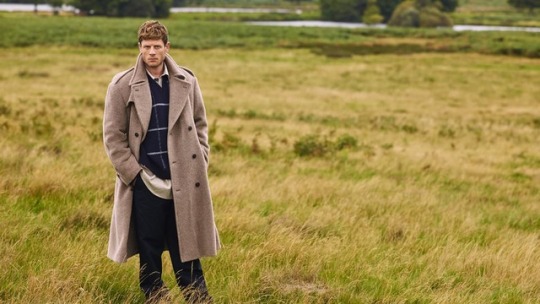
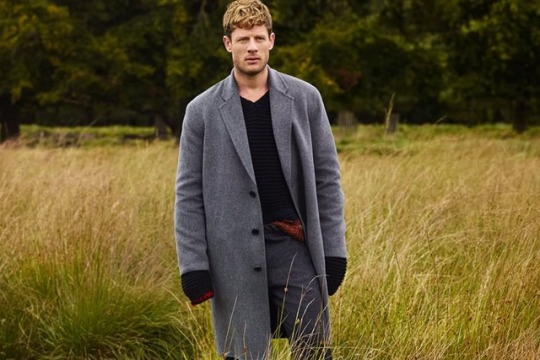
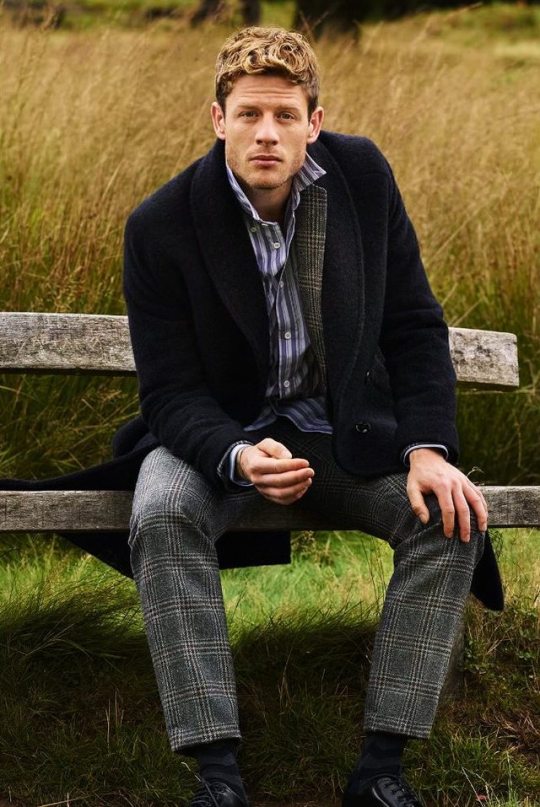

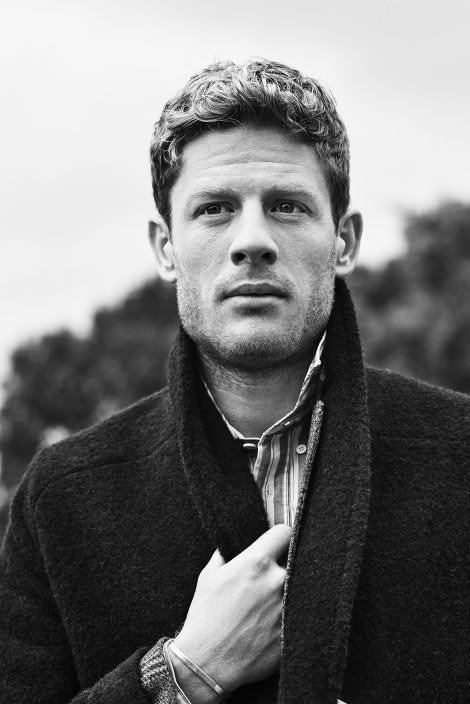
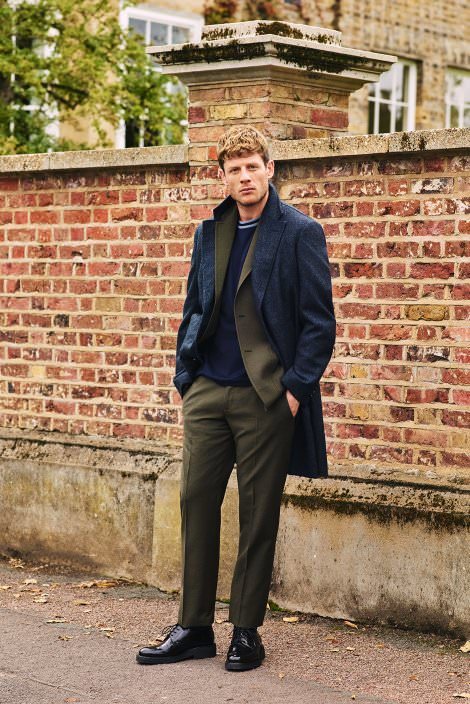
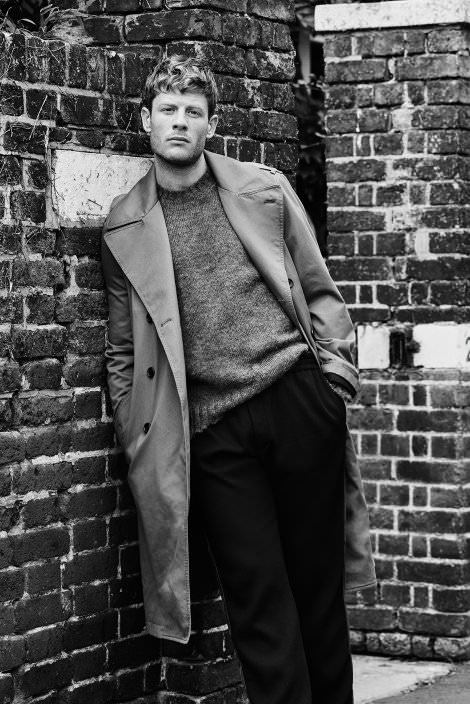
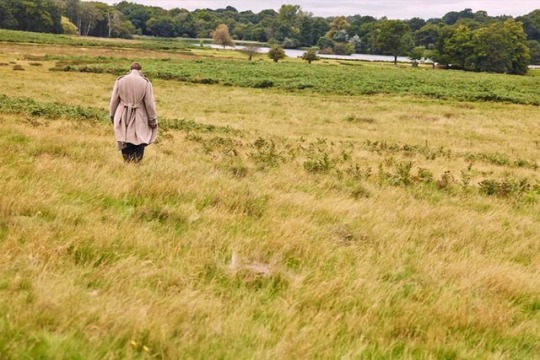
THE RISE OF MR JAMES NORTON
Britain’s brightest TV star on breaking into Hollywood and whether he could be the next James Bond
Mr. James Norton is not a man to be underestimated. The first time I noticed the London-born, Yorkshire-raised actor, he was playing an earnest young lover in Death Comes To Pemberley, a cosy whodunnit set in the world of Ms Jane Austen’s Pride And Prejudice. I had him down as a production-line fop, the kind that elite English schools crank out as reliably as the Disney Club cranks out Mouseketeers. He seemed… nice. Agreeable. The sort of teacake your granny would like.
I certainly couldn’t see him pulling off someone such as Tommy Lee Royce in Happy Valley, the most haunting TV psychopath of recent years. Or earning admiring reviews from the Russians for playing their national literary hero, Prince Andrei Bolkonsky, in the all-star BBC adaptation of War & Peace. But in projects as varied as the clerical mystery Grantchester and dystopian drama Black Mirror, Mr Norton has demonstrated that enviable quality – range – and has configured his career to use it to the fullest.
“That’s the joy,” he says. “Most actors would agree that the reason why you go into the job is that there’s a hunger for experience, a general inquisitiveness. When you have a group of actors at a restaurant, everyone will try everything. It’s not just a sensory thing. It’s about wanting to suck up everything that life can offer.”
Life is offering Mr Norton, 32, a lot right now, and it couldn’t happen to a more grateful individual. His conversation is peppered with “I’m so lucky”, “It’s a privilege”, “One of the joys”, etc. His first Hollywood studio production, Flatliners, is about to hit cinemas. It’s a remake of Mr Joel Schumacher’s cult 1990 psycho horror, which starred Mr Keifer Sutherland and Ms Julia Roberts, about a group of medical students experimenting with near-death experiences. In the remake, Mr Norton stars opposite Ms Ellen Page and Mr Diego Luna. And he’s taking the lead as the son of a Russian mobster in McMafia, a BBC/AMC international co-production that stands out in the autumn TV schedules. “One of those situations where everything is in place, and all you need to do as an actor is not fuck it up,” he says.
One of the co-writers is Mr David Farr, who adapted Mr John Le Carré’s The Night Manager for BBC, which was widely seen as Mr Tom Hiddleston’s audition for the role of James Bond. So it will do Mr Norton’s chances of leapfrogging his fellow Cambridge graduate on the shortlist no harm at all. They’re both 8/1 with William Hill. “It’s nice to be in that conversation,” he says. “But I’m certainly not saying no to stuff because I’m holding out for that.”
For now, Mr Norton has asked me to meet him at the National Theatre in London. I assume he’s in rehearsals for some top-secret project (though he does confess an ambition to play Hamlet here one day), but no, he just wants to spare me an off-Tube trip to Peckham in south London, where he lives. He turns up in “vegan trainers”, made by Veja, black Levi’s and an old grey cashmere jumper, with what looks like a duelling wound on his neck but turns out to be a scar from an operation on an old rugby injury. He is profusely apologetic for being approximately five minutes late. And prays leave for another 60 seconds of my patience so he can purchase a croissant.
He’s a Type 1 diabetic and a “little munch” will ensure he doesn’t die during the course of our interview. Mr James Geoffrey Ian Norton grew up in a timeless bit of North Yorkshire and remains a country boy at heart. It is rare that he passes a body of water in which he doesn’t want to take a dip. “I love being outside, swimming in the lido or Shadwell Basin,” he says. “There’s a bridge near where my parents live where you can jump in. It’s so wholesome and English.” His dream is to have a river in his garden, so he can frolic among the trout and herons each morning. His childhood was idyllic but also instructive. Both his parents are academics, both took an equal role in domestic duties and both encouraged reasoned debates around the kitchen table. Young Mr Norton was sent to Ampleforth boarding school (posh, monastic, Catholic) and went on to study theology and philosophy at Fitzwilliam College, Cambridge, before a spell at the Royal Academy of Dramatic Arts. People often assume he’s religious – the dog collar he wears for the 1950s period piece Grantchester doesn’t help – but he says his youthful interest in Christ was more one of “moral intrigue and the love of storytelling. I loved the gospel reading at mass every Sunday. But it became a relationship of intrigue rather than belief. And most of my degree was about Hinduism and Buddhism in any case.”
Still, you can see why he makes such a convincing vicar in Grantchester and why he’d want to break away from that mode. “I remember early on in my career people would say to me things like, ‘You have a very period face.’ I was like, what does that mean? They’d seen me in a couple of period dramas and imagined that would be my career.”
So he was elated when the supremely depressing Happy Valley came along. Ms Sally Wainwright’s critically lauded BBC series (now streaming on Netflix) gave him the chance to play a working-class ex-convict whose soul descends to the very depths of hell. “I will be forever grateful for that role,” he says. “To be given the opportunity to prove myself like that was just great.” He sees each role as a licence to go out and learn. “Not just from an academic point of view, but in an emotional, embodied way. The word we always use is empathy. There’s nothing more powerful than that. I’d never managed to empathise with a serial killer from any article about them, but when you’re actually inhabiting them, you have to learn to love them, however abhorrent they are.”
I guess it’s about getting to know the part of yourself that could kidnap and torture, were circumstances different. “It’s like undergoing a crude form of psychoanalysis on your own,” says Mr Norton, but confesses that it’s also kind of fun. “I’ve been wary talking about this because it could be misconstrued,” he says slowly. “But it was incredibly empowering not to care at all what people think, to go the other way and want people to be afraid of me. For someone like me, who goes around the whole time being very polite, to be allowed to spend some time not giving a fuck what people think was fucking cool.” He smiles bashfully. “I remember walking on set and seeing people’s reactions to me with a skinhead and tattoos. People started to treat me completely differently.”
He’s no method actor. He and his co-star, Ms Sarah Lancashire, tried to keep the mood light between scenes. But still, he found Tommy hard to shake off. “He’s so mistrusting of the world,” he says. “The sadness in that character was that he thought the world was so inherently hostile that the kindest thing he could do for his son was to take him away from this suffering. That’s dark.” He was haunted by “weird, dark dreams, me being horribly abusive”.
McMafia ought to draw on similarly dark currents, albeit in more glamorous circumstances. Mr Norton plays Alex, a “Michael Corleone-type Russian guy”, who ends up being pulled back into the family business (crime, extortion, money laundering) despite his efforts to escape. “His dad was a Mafia boss who was exiled by Putin, but Alex has tried to turn his back on that and set up his life properly, with a fiancée and a good job.” Mr Norton is particularly excited about this one. Mr Farr’s co-writer is Mr Hossein Amini, who created Mr Ryan Gosling’s tour de force Drive, and it’s inspired by investigative journalist Mr Misha Glenny’s book. The cast includes highly respected Russian actor Mr Aleksey Serebryakov (from Leviathan) plus a host of stars from Israel, Mexico, Brazil and Turkey. “It was such an interesting set,” says Mr Norton. “I don’t think there can have been many casts like it. And with what’s going on with Trump, Russia, the Panama Papers, all that, basically our show lifts up the curtain and shows what state-level corruption looks like. The Mafia isn’t a family with a protection racket in a city. It’s a multi-national globalised corporation where all the parts are linked. You always want to be chasing the zeitgeist. With this, for the first time in my life, I felt the zeitgeist was chasing us.”
On Flatliners, he seems a little more tentative, perhaps wary of incurring the wrath of fans of the original movie. “Everyone remembers it very fondly,” he says. But it was the first time he’d been let loose in a big studio. “The money, the toys, the stunts – Ellen and Diego had done all that before, but I was like this token Brit, running around having lots of fun.”
As for the other sides of success, he’s readjusting. Last we heard, Mr Norton was in a relationship with Ms Jessie Buckley, the English actress who played his sister in War & Peace, but when I ask about his love life he makes a complicated face and asks if we can avoid this particular subject. “Having this dream job, it compromises family, friends, relationship, because you’re always away,” he says. “I have 12 cousins and we’re all very close, but there have been a few family occasions where I’m the only one who isn’t there. And your relationships do take hits.”
He’s politically engaged, too – “As I think we all are right now” – but isn’t sure if and when to use his celebrity to promote his causes. “I must be the most boring person to follow on Twitter,” he says. He essayed a few politically themed tweets recently, but found the response a bit dismaying. “I tweeted a photo from an anti-Brexit march a few months ago, and said, ‘Let’s get behind a second referendum, there is hope!’ and I’ve never received so much hate and vitriol. And I thought, what’s the point? Well, there is a point, but maybe that’s not the right way to make it. Maybe it’s better to start a conversation, to listen rather than to shout.”
That doesn’t seem a bad idea. He’s itching to get behind the camera, he says. He has stories he’d like to tell. “I don’t want to be sanctimonious, but I’m interested in using my voice as an artist to…” He trails off – that English habit of not quite finishing his sentences – before remarking how much he admired Mr Ken Loach’s I, Daniel Blake, a devastating indictment of the British welfare system. But it seems his own thoughts are more to do with young men and their place in the world. He’s been reading Narcissus And Goldmund by Mr Hermann Hesse, which is about two monks taking divergent paths through the world – one as an artist, one as a thinker – at the time of the Black Death. It seems to have struck a chord.
“There’s a lot of confusion now about men’s place in the world,” says Mr Norton. “There needs to be a conversation. I’m putting together a script about how a young man deals with that confusion. We’re being pulled in different directions. I think for women, the feminist movement is a lot clearer. And we do need to redress pay inequality and, of course, men are implicated in that. But we also need to recalibrate our own position. Men whose identity is to do with being a protector and provider and full of testosterone are finding it harder.”
When it comes to redressing the gender imbalance, however, he seems more than happy to take one for the team. He is a reliable source of “phwoar”-style headlines in newspapers. “Female actors have been putting up with this tenfold for ever,” he says. “So I don’t feel male actors have a particular right to cry out about this. I don’t feel objectified, put it that way.”
40 notes
·
View notes
Link
Words by Mr Richard Godwin
Photography by Mr Mark Kean
Styling by Ms Eilidh Greig, Fashion Editor, MR PORTER
Mr James Norton is not a man to be underestimated. The first time I noticed the London-born, Yorkshire-raised actor, he was playing an earnest young lover in Death Comes To Pemberley, a cosy whodunnit set in the world of Ms Jane Austen’s Pride And Prejudice. I had him down as a production-line fop, the kind that elite English schools crank out as reliably as the Disney Club cranks out Mouseketeers. He seemed… nice. Agreeable. The sort of teacake your granny would like.
I certainly couldn’t see him pulling off someone such as Tommy Lee Royce in Happy Valley, the most haunting TV psychopath of recent years. Or earning admiring reviews from the Russians for playing their national literary hero, Prince Andrei Bolkonsky, in the all-star BBC adaptation of War & Peace. But in projects as varied as the clerical mystery Grantchester and dystopian drama Black Mirror, Mr Norton has demonstrated that enviable quality – range – and has configured his career to use it to the fullest.
“That’s the joy,” he says. “Most actors would agree that the reason why you go into the job is that there’s a hunger for experience, a general inquisitiveness. When you have a group of actors at a restaurant, everyone will try everything. It’s not just a sensory thing. It’s about wanting to suck up everything that life can offer.”
Life is offering Mr Norton, 32, a lot right now, and it couldn’t happen to a more grateful individual. His conversation is peppered with “I’m so lucky”, “It’s a privilege”, “One of the joys”, etc. His first Hollywood studio production, Flatliners, is about to hit cinemas. It’s a remake of Mr Joel Schumacher’s cult 1990 psycho horror, which starred Mr Keifer Sutherland and Ms Julia Roberts, about a group of medical students experimenting with near-death experiences. In the remake, Mr Norton stars opposite Ms Ellen Page and Mr Diego Luna. And he’s taking the lead as the son of a Russian mobster in McMafia, a BBC/AMC international co-production that stands out in the autumn TV schedules. “One of those situations where everything is in place, and all you need to do as an actor is not fuck it up,” he says.
One of the co-writers is Mr David Farr, who adapted Mr John Le Carré’s The Night Manager for BBC, which was widely seen as Mr Tom Hiddleston’s audition for the role of James Bond. So it will do Mr Norton’s chances of leapfrogging his fellow Cambridge graduate on the shortlist no harm at all. They’re both 8/1 with William Hill. “It’s nice to be in that conversation,” he says. “But I’m certainly not saying no to stuff because I’m holding out for that.”
For now, Mr Norton has asked me to meet him at the National Theatre in London. I assume he’s in rehearsals for some top-secret project (though he does confess an ambition to play Hamlet here one day), but no, he just wants to spare me an off-Tube trip to Peckham in south London, where he lives. He turns up in “vegan trainers”, made by Veja, black Levi’s and an old grey cashmere jumper, with what looks like a duelling wound on his neck but turns out to be a scar from an operation on an old rugby injury. He is profusely apologetic for being approximately five minutes late. And prays leave for another 60 seconds of my patience so he can purchase a croissant.
He’s a Type 1 diabetic and a “little munch” will ensure he doesn’t die during the course of our interview. Mr James Geoffrey Ian Norton grew up in a timeless bit of North Yorkshire and remains a country boy at heart. It is rare that he passes a body of water in which he doesn’t want to take a dip. “I love being outside, swimming in the lido or Shadwell Basin,” he says. “There’s a bridge near where my parents live where you can jump in. It’s so wholesome and English.” His dream is to have a river in his garden, so he can frolic among the trout and herons each morning. His childhood was idyllic but also instructive. Both his parents are academics, both took an equal role in domestic duties and both encouraged reasoned debates around the kitchen table. Young Mr Norton was sent to Ampleforth boarding school (posh, monastic, Catholic) and went on to study theology and philosophy at Fitzwilliam College, Cambridge, before a spell at the Royal Academy of Dramatic Arts. People often assume he’s religious – the dog collar he wears for the 1950s period piece Grantchester doesn’t help – but he says his youthful interest in Christ was more one of “moral intrigue and the love of storytelling. I loved the gospel reading at mass every Sunday. But it became a relationship of intrigue rather than belief. And most of my degree was about Hinduism and Buddhism in any case.”
Still, you can see why he makes such a convincing vicar in Grantchester and why he’d want to break away from that mode. “I remember early on in my career people would say to me things like, ‘You have a very period face.’ I was like, what does that mean? They’d seen me in a couple of period dramas and imagined that would be my career.”
So he was elated when the supremely depressing Happy Valley came along. Ms Sally Wainwright’s critically lauded BBC series (now streaming on Netflix) gave him the chance to play a working-class ex-convict whose soul descends to the very depths of hell. “I will be forever grateful for that role,” he says. “To be given the opportunity to prove myself like that was just great.” He sees each role as a licence to go out and learn. “Not just from an academic point of view, but in an emotional, embodied way. The word we always use is empathy. There’s nothing more powerful than that. I’d never managed to empathise with a serial killer from any article about them, but when you’re actually inhabiting them, you have to learn to love them, however abhorrent they are.”
I guess it’s about getting to know the part of yourself that could kidnap and torture, were circumstances different. “It’s like undergoing a crude form of psychoanalysis on your own,” says Mr Norton, but confesses that it’s also kind of fun. “I’ve been wary talking about this because it could be misconstrued,” he says slowly. “But it was incredibly empowering not to care at all what people think, to go the other way and want people to be afraid of me. For someone like me, who goes around the whole time being very polite, to be allowed to spend some time not giving a fuck what people think was fucking cool.” He smiles bashfully. “I remember walking on set and seeing people’s reactions to me with a skinhead and tattoos. People started to treat me completely differently.”
He’s no method actor. He and his co-star, Ms Sarah Lancashire, tried to keep the mood light between scenes. But still, he found Tommy hard to shake off. “He’s so mistrusting of the world,” he says. “The sadness in that character was that he thought the world was so inherently hostile that the kindest thing he could do for his son was to take him away from this suffering. That’s dark.” He was haunted by “weird, dark dreams, me being horribly abusive”.
McMafia ought to draw on similarly dark currents, albeit in more glamorous circumstances. Mr Norton plays Alex, a “Michael Corleone-type Russian guy”, who ends up being pulled back into the family business (crime, extortion, money laundering) despite his efforts to escape. “His dad was a Mafia boss who was exiled by Putin, but Alex has tried to turn his back on that and set up his life properly, with a fiancée and a good job.” Mr Norton is particularly excited about this one. Mr Farr’s co-writer is Mr Hossein Amini, who created Mr Ryan Gosling’s tour de force Drive, and it’s inspired by investigative journalist Mr Misha Glenny’s book. The cast includes highly respected Russian actor Mr Aleksey Serebryakov (from Leviathan) plus a host of stars from Israel, Mexico, Brazil and Turkey. “It was such an interesting set,” says Mr Norton. “I don’t think there can have been many casts like it. And with what’s going on with Trump, Russia, the Panama Papers, all that, basically our show lifts up the curtain and shows what state-level corruption looks like. The Mafia isn’t a family with a protection racket in a city. It’s a multi-national globalised corporation where all the parts are linked. You always want to be chasing the zeitgeist. With this, for the first time in my life, I felt the zeitgeist was chasing us.”
On Flatliners, he seems a little more tentative, perhaps wary of incurring the wrath of fans of the original movie. “Everyone remembers it very fondly,” he says. But it was the first time he’d been let loose in a big studio. “The money, the toys, the stunts – Ellen and Diego had done all that before, but I was like this token Brit, running around having lots of fun.”
As for the other sides of success, he’s readjusting. Last we heard, Mr Norton was in a relationship with Ms Jessie Buckley, the English actress who played his sister in War & Peace, but when I ask about his love life he makes a complicated face and asks if we can avoid this particular subject. “Having this dream job, it compromises family, friends, relationship, because you’re always away,” he says. “I have 12 cousins and we’re all very close, but there have been a few family occasions where I’m the only one who isn’t there. And your relationships do take hits.”
He’s politically engaged, too – “As I think we all are right now” – but isn’t sure if and when to use his celebrity to promote his causes. “I must be the most boring person to follow on Twitter,” he says. He essayed a few politically themed tweets recently, but found the response a bit dismaying. “I tweeted a photo from an anti-Brexit march a few months ago, and said, ‘Let’s get behind a second referendum, there is hope!’ and I’ve never received so much hate and vitriol. And I thought, what’s the point? Well, there is a point, but maybe that’s not the right way to make it. Maybe it’s better to start a conversation, to listen rather than to shout.”
That doesn’t seem a bad idea. He’s itching to get behind the camera, he says. He has stories he’d like to tell. “I don’t want to be sanctimonious, but I’m interested in using my voice as an artist to…” He trails off – that English habit of not quite finishing his sentences – before remarking how much he admired Mr Ken Loach’s I, Daniel Blake, a devastating indictment of the British welfare system. But it seems his own thoughts are more to do with young men and their place in the world. He’s been reading Narcissus And Goldmund by Mr Hermann Hesse, which is about two monks taking divergent paths through the world – one as an artist, one as a thinker – at the time of the Black Death. It seems to have struck a chord.
“There’s a lot of confusion now about men’s place in the world,” says Mr Norton. “There needs to be a conversation. I’m putting together a script about how a young man deals with that confusion. We’re being pulled in different directions. I think for women, the feminist movement is a lot clearer. And we do need to redress pay inequality and, of course, men are implicated in that. But we also need to recalibrate our own position. Men whose identity is to do with being a protector and provider and full of testosterone are finding it harder.”
When it comes to redressing the gender imbalance, however, he seems more than happy to take one for the team. He is a reliable source of “phwoar”-style headlines in newspapers. “Female actors have been putting up with this tenfold for ever,” he says. “So I don’t feel male actors have a particular right to cry out about this. I don’t feel objectified, put it that way.”
Flatliners is out on 29 September
28 notes
·
View notes